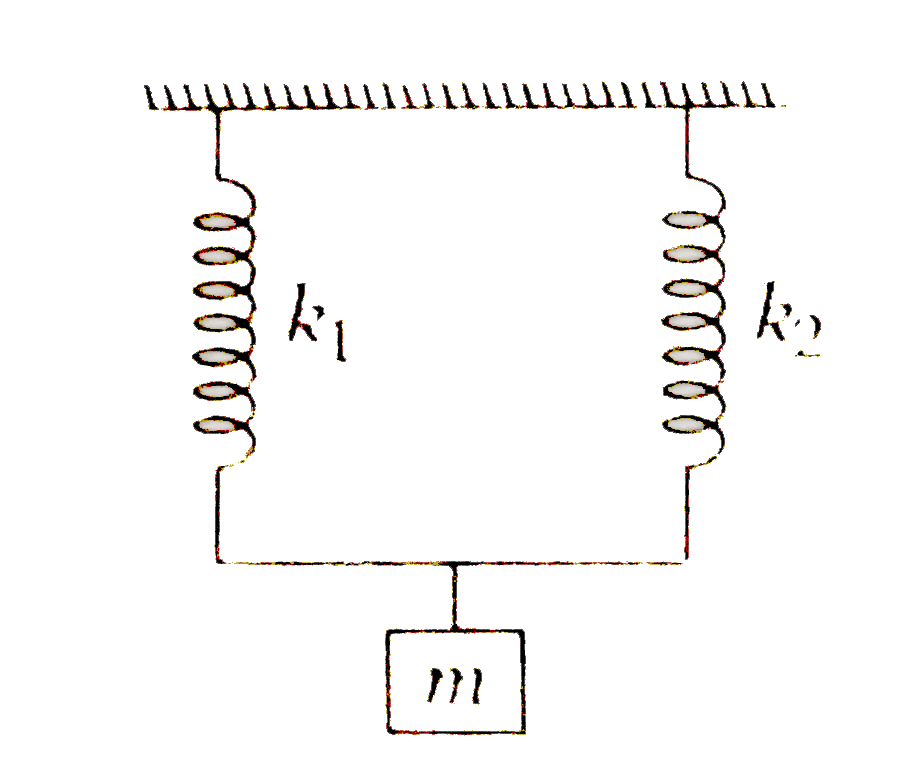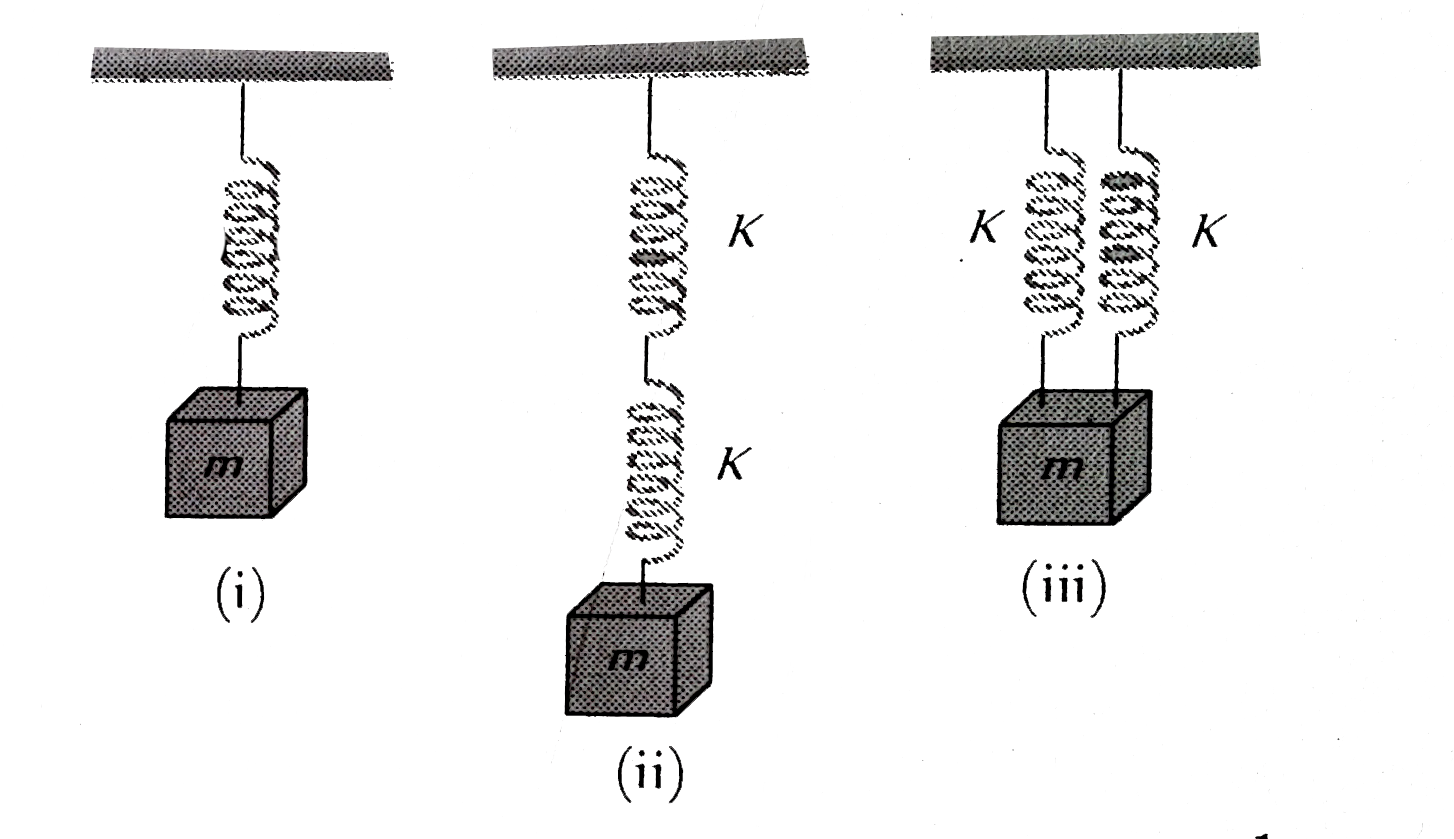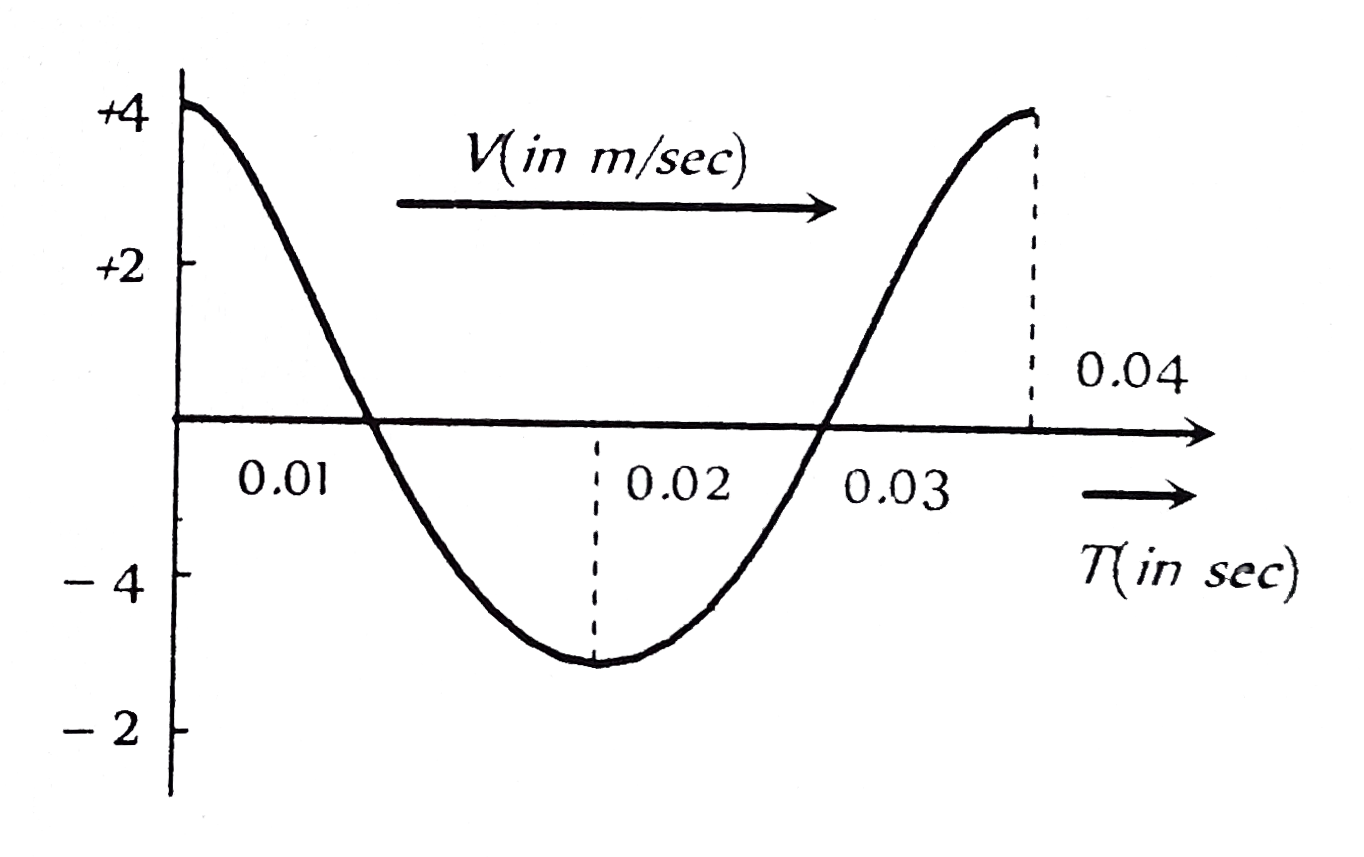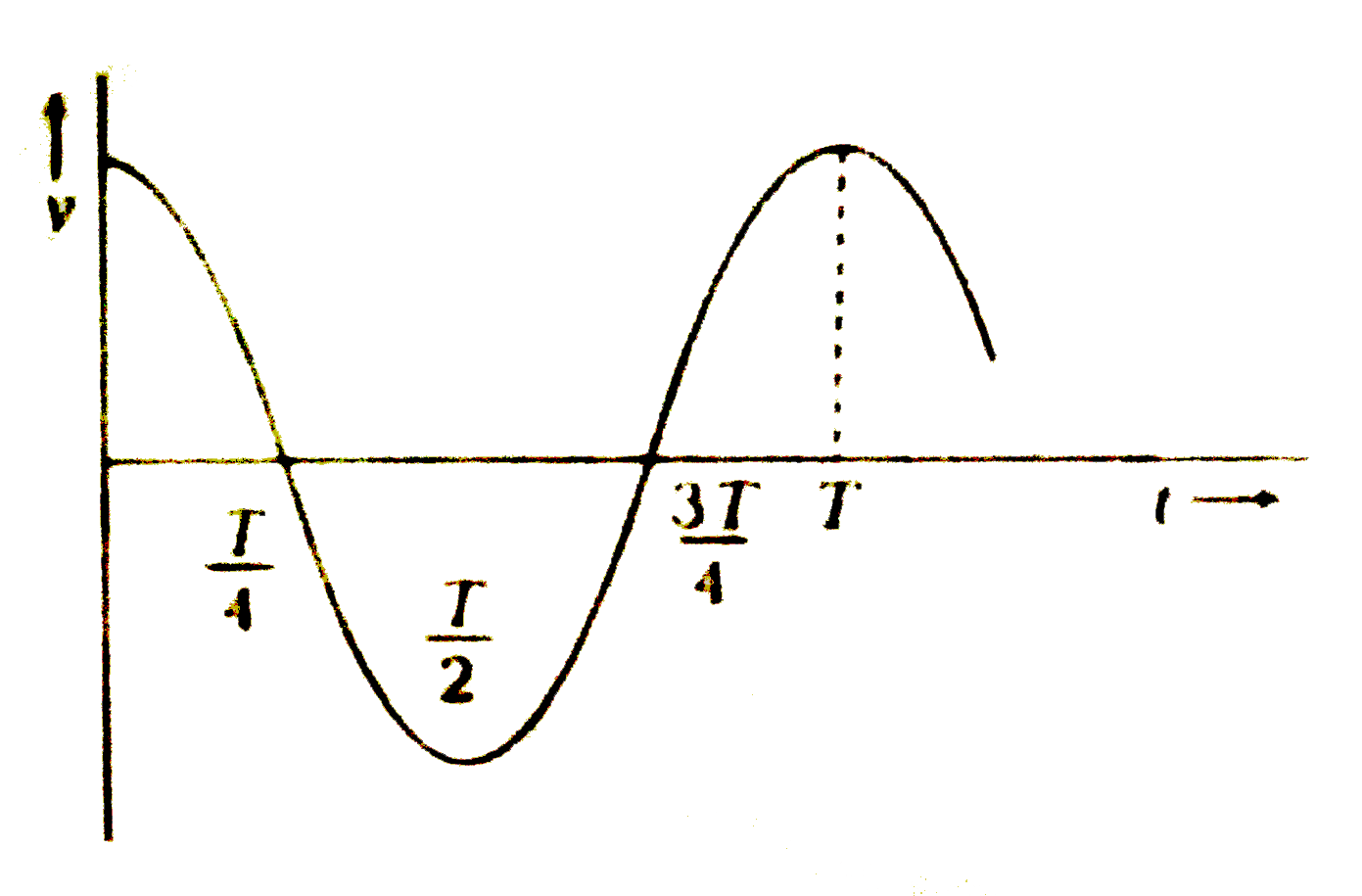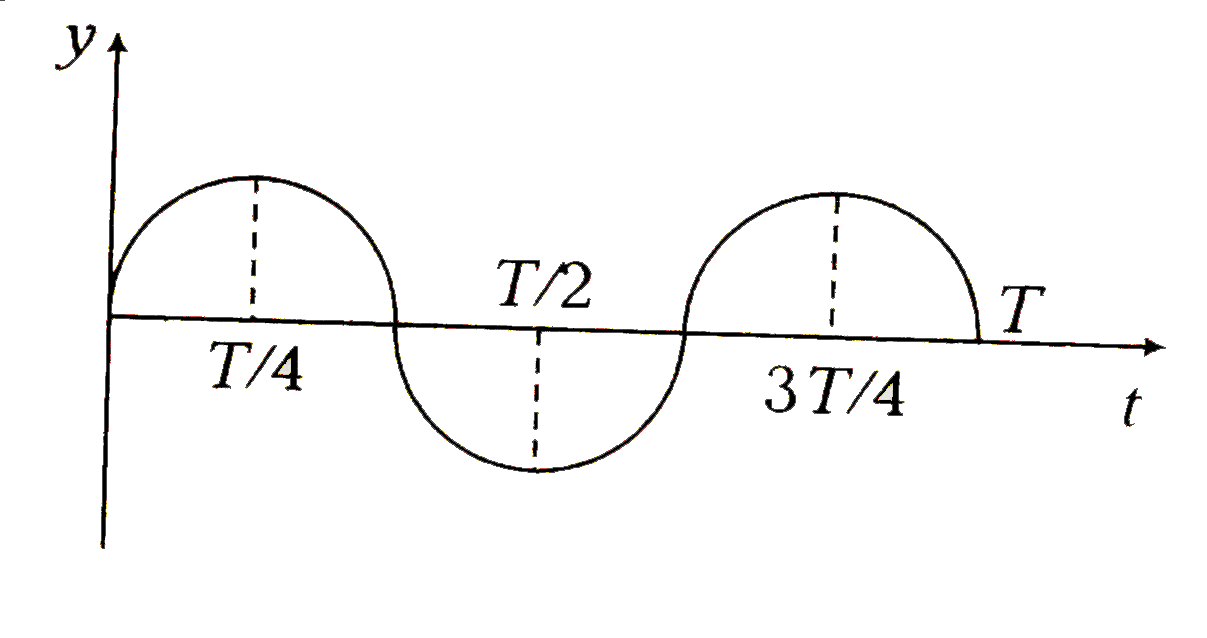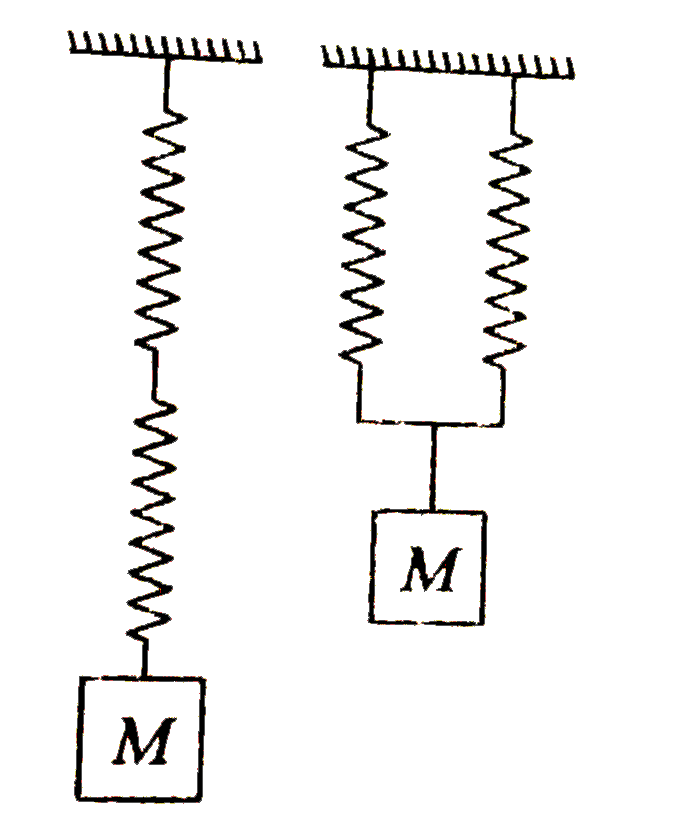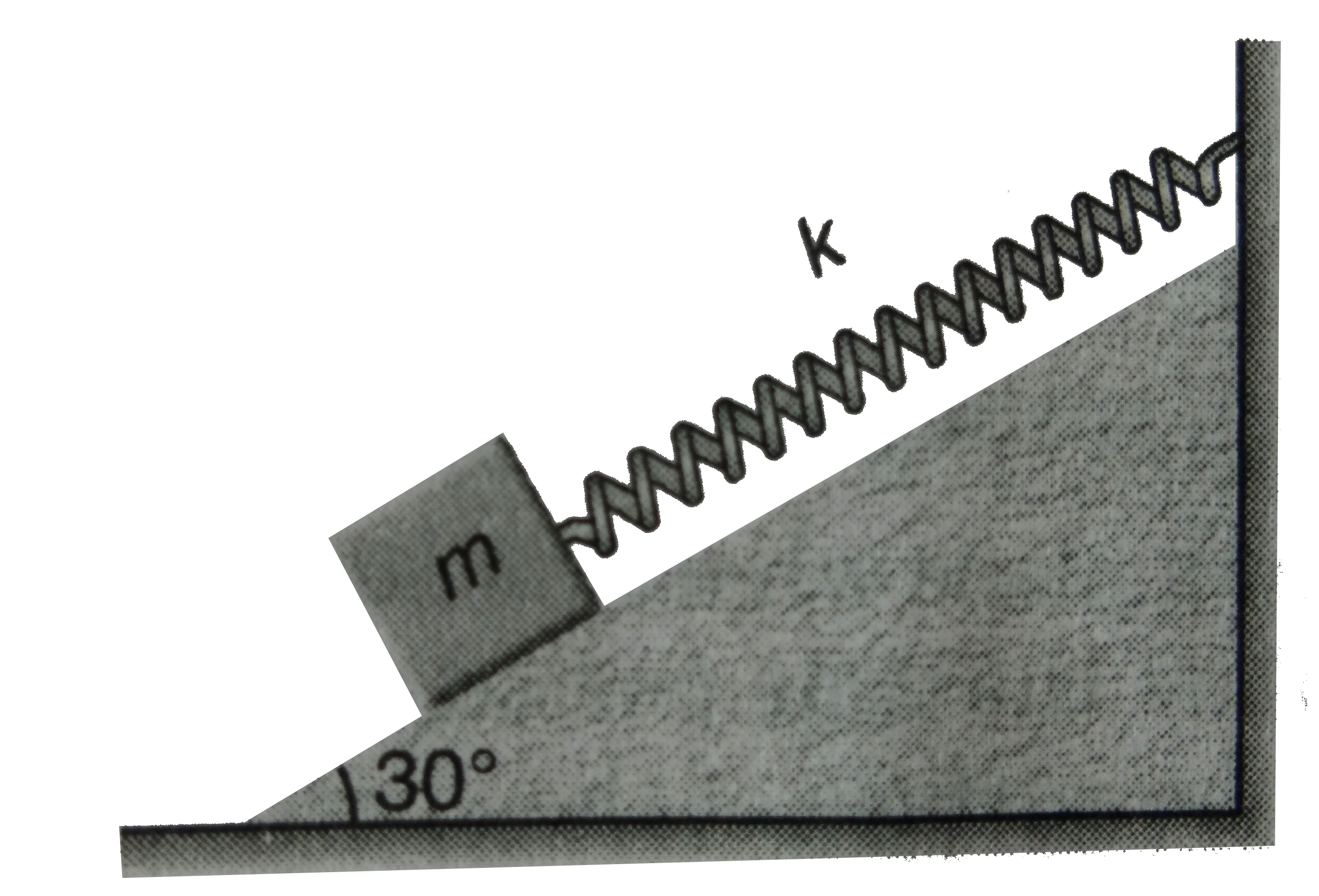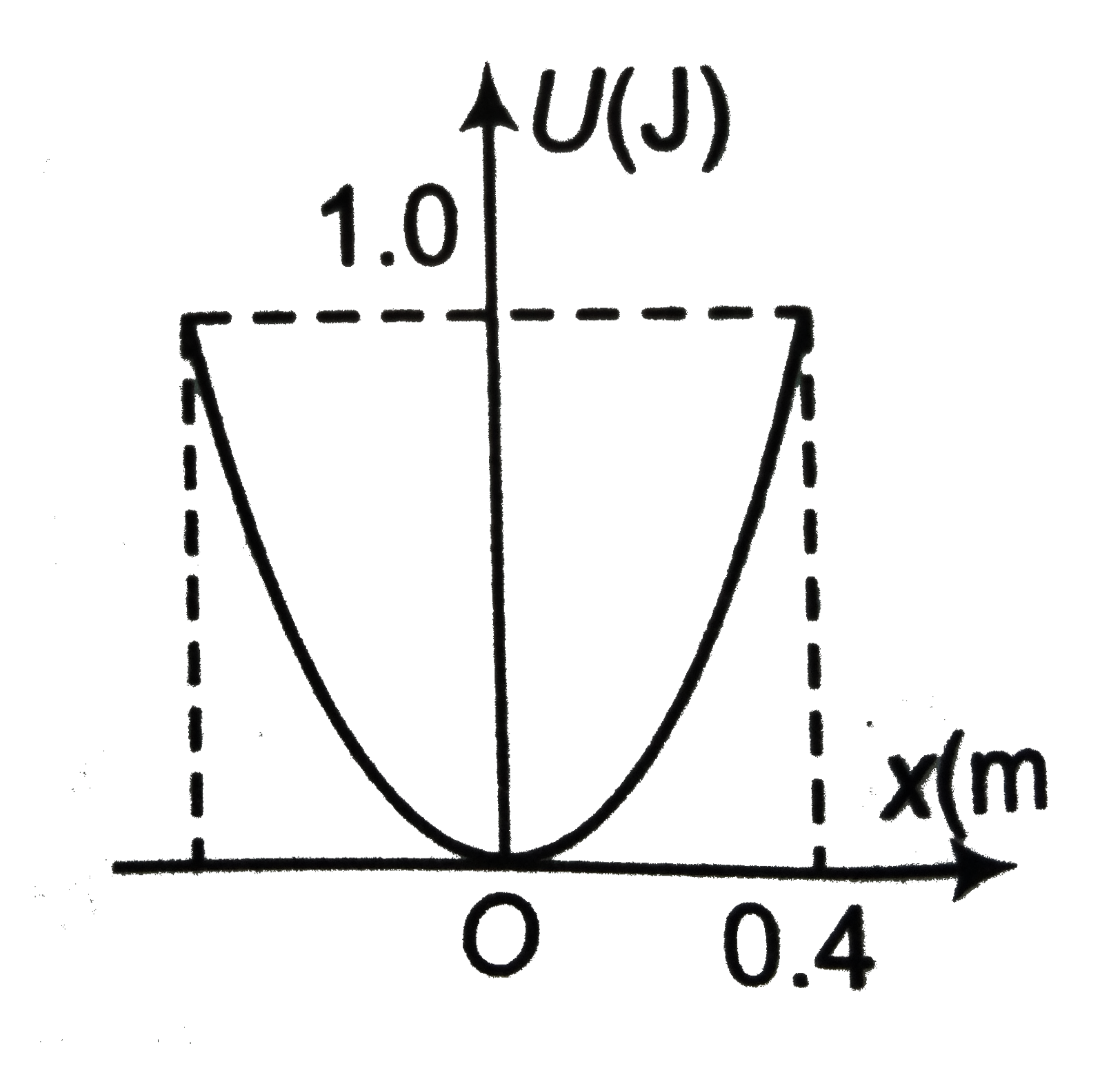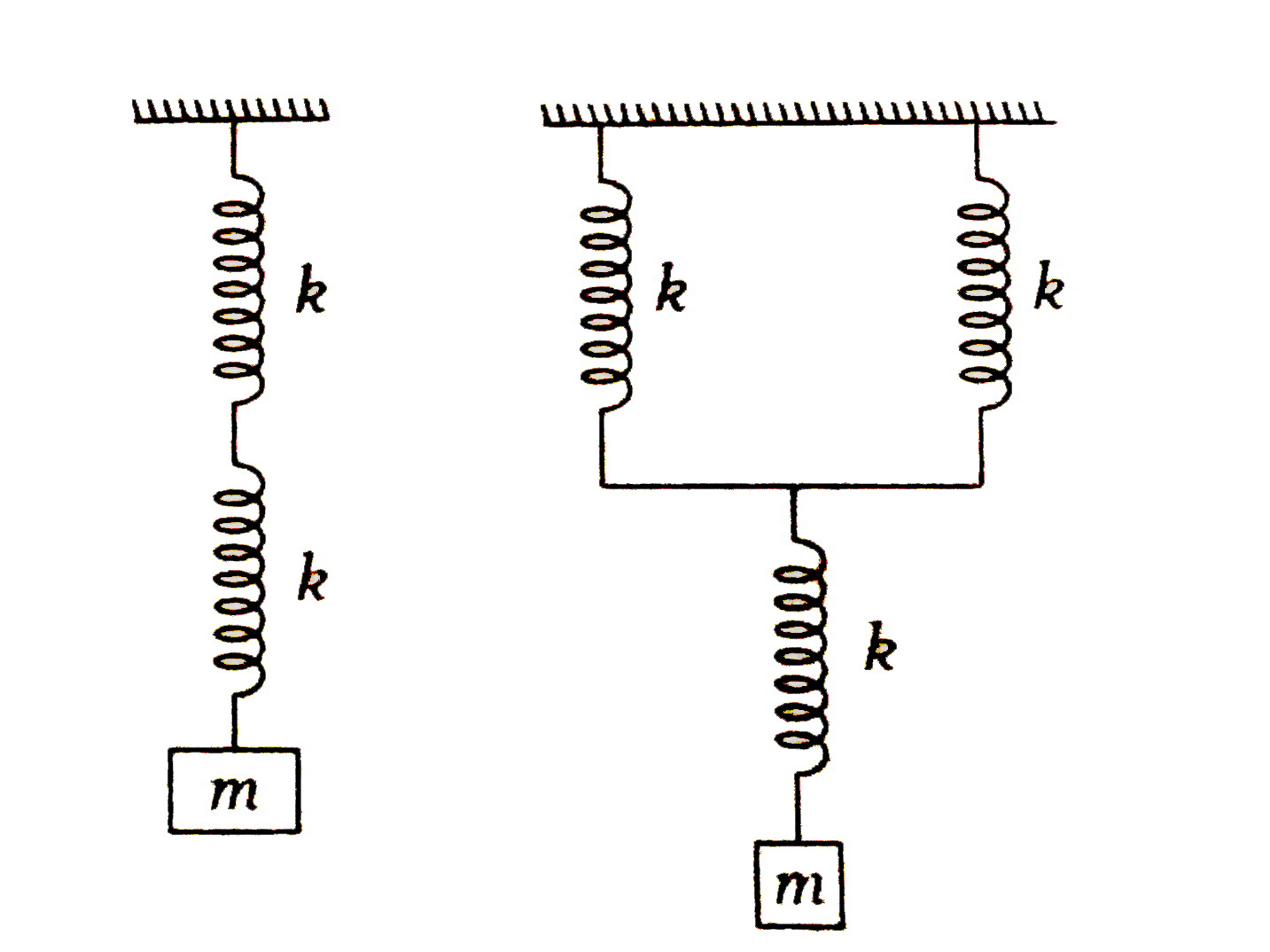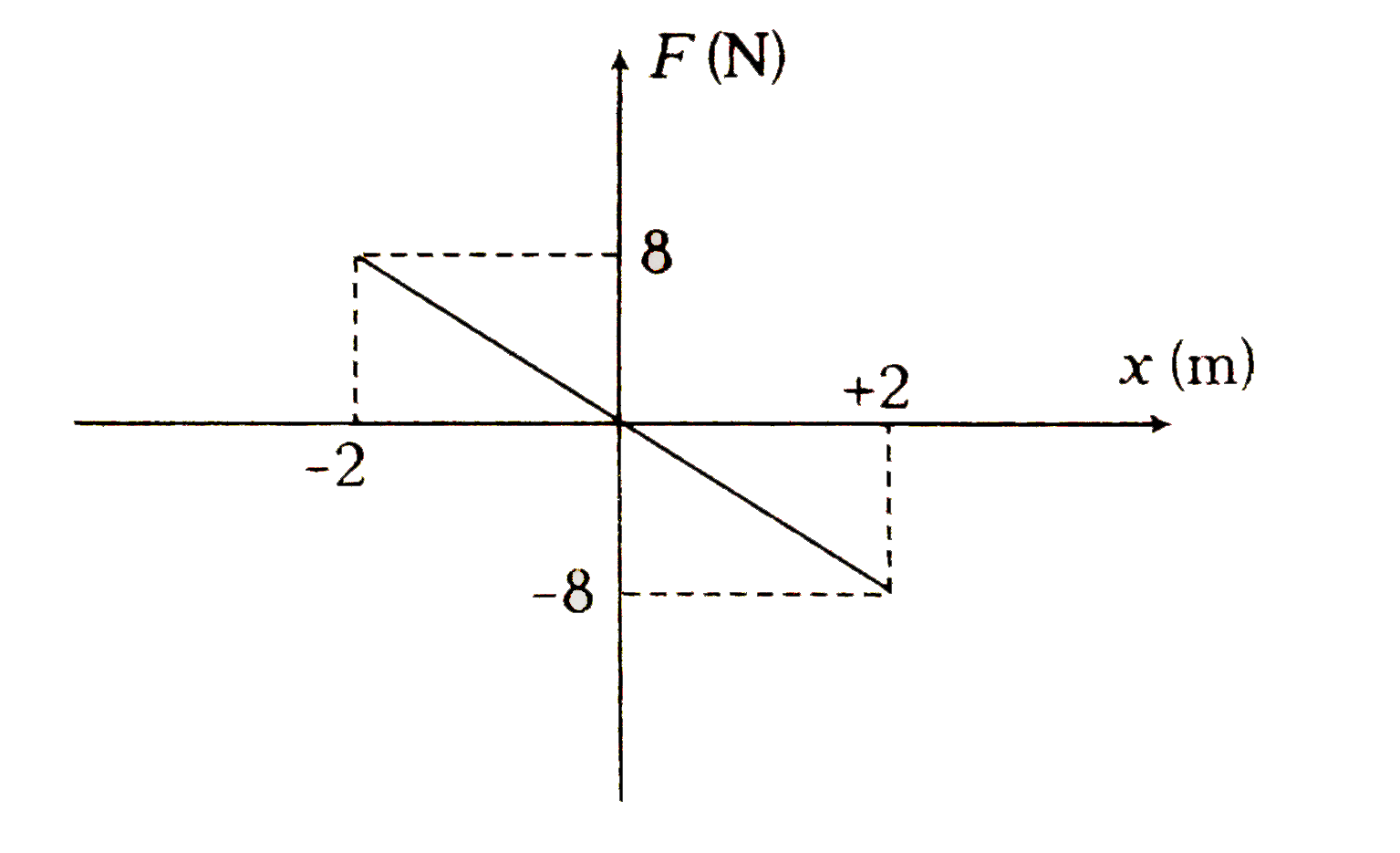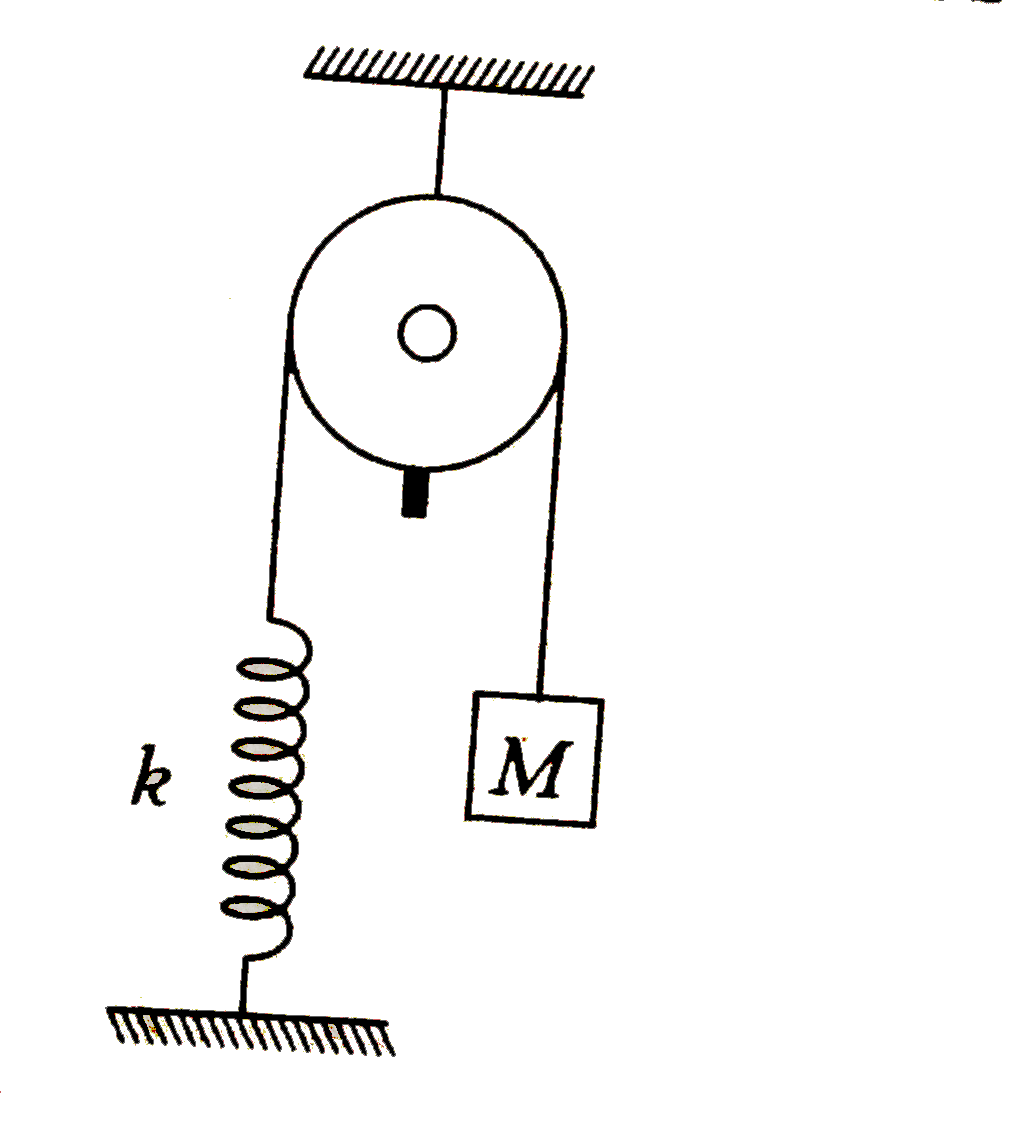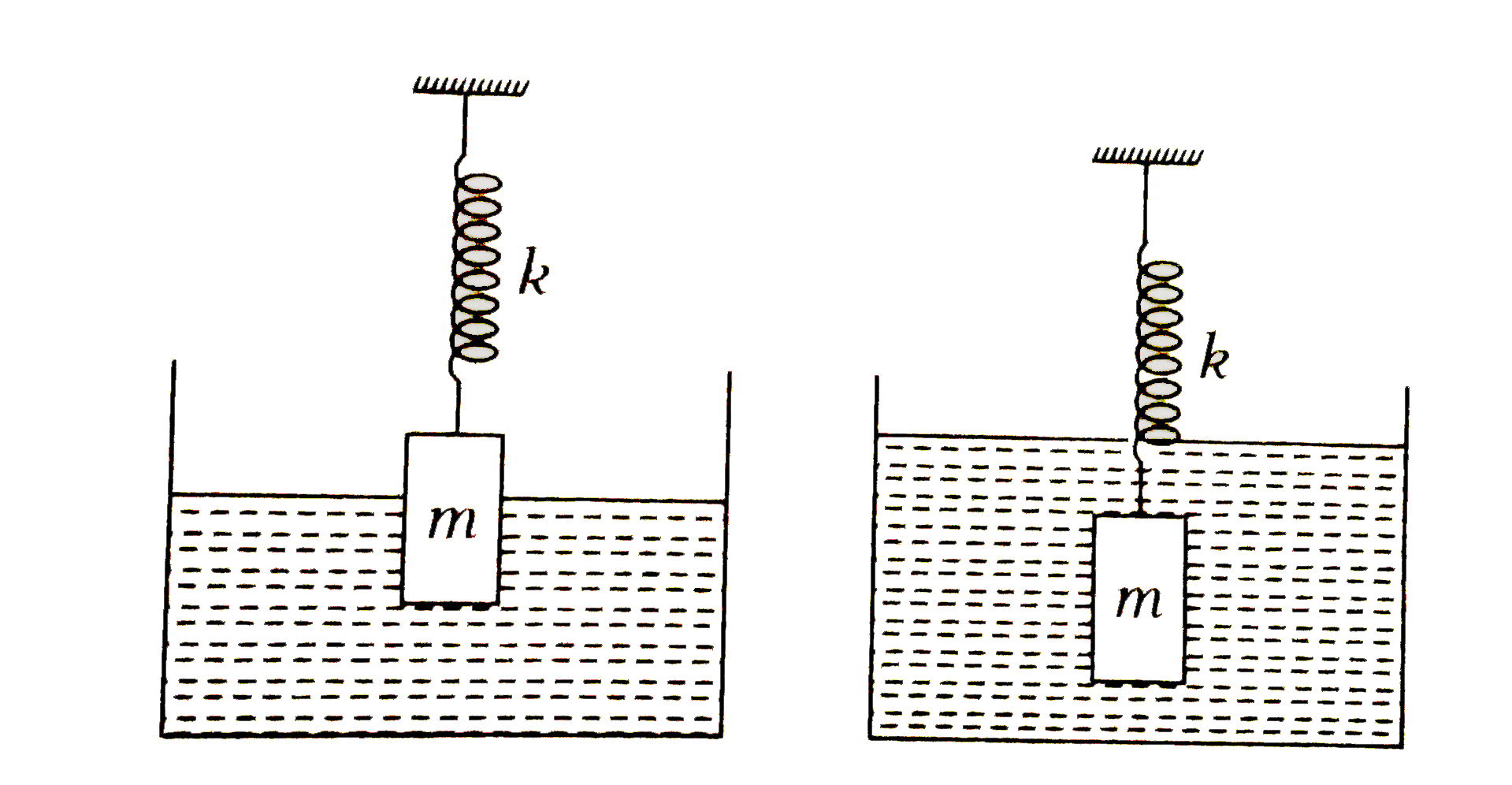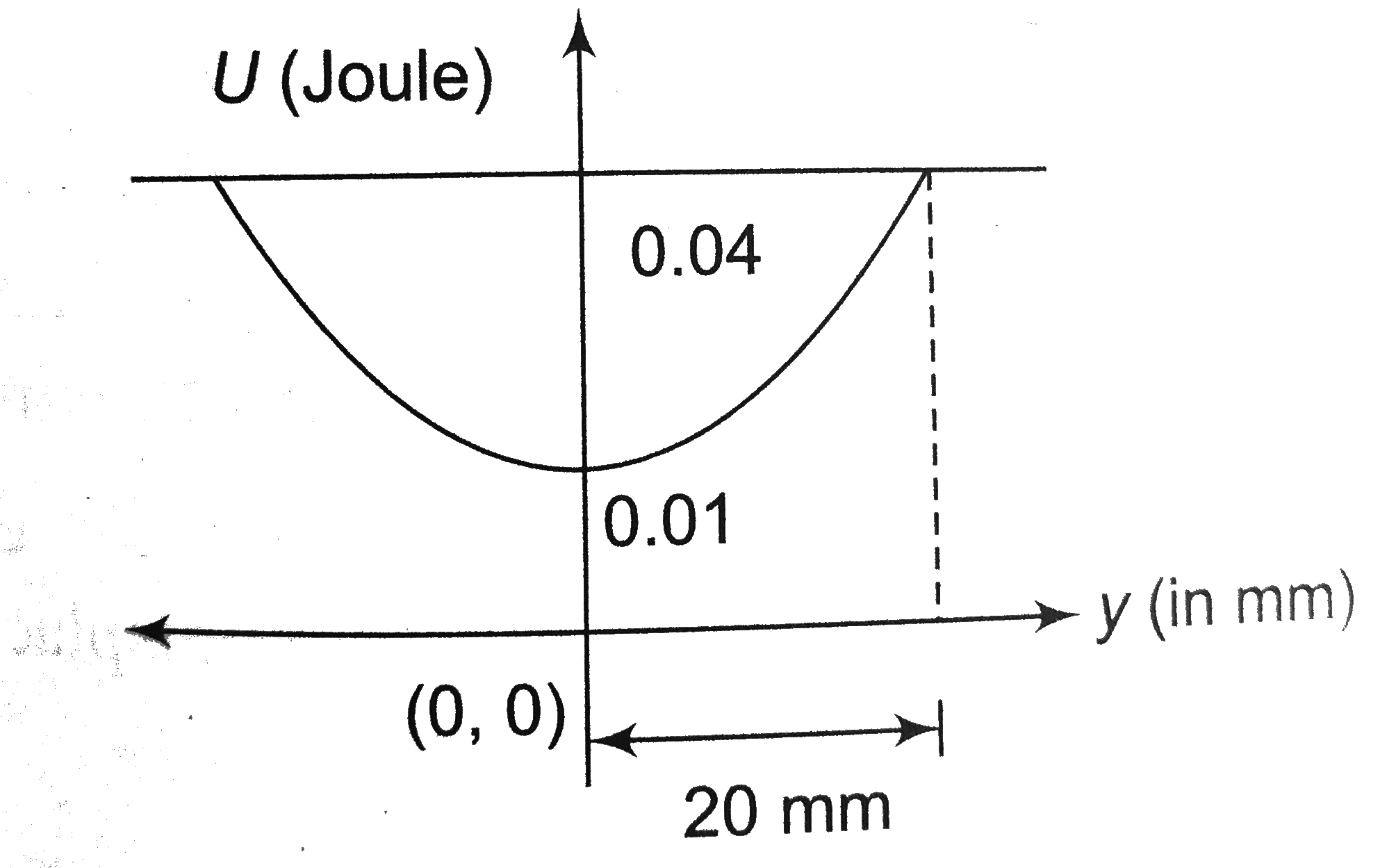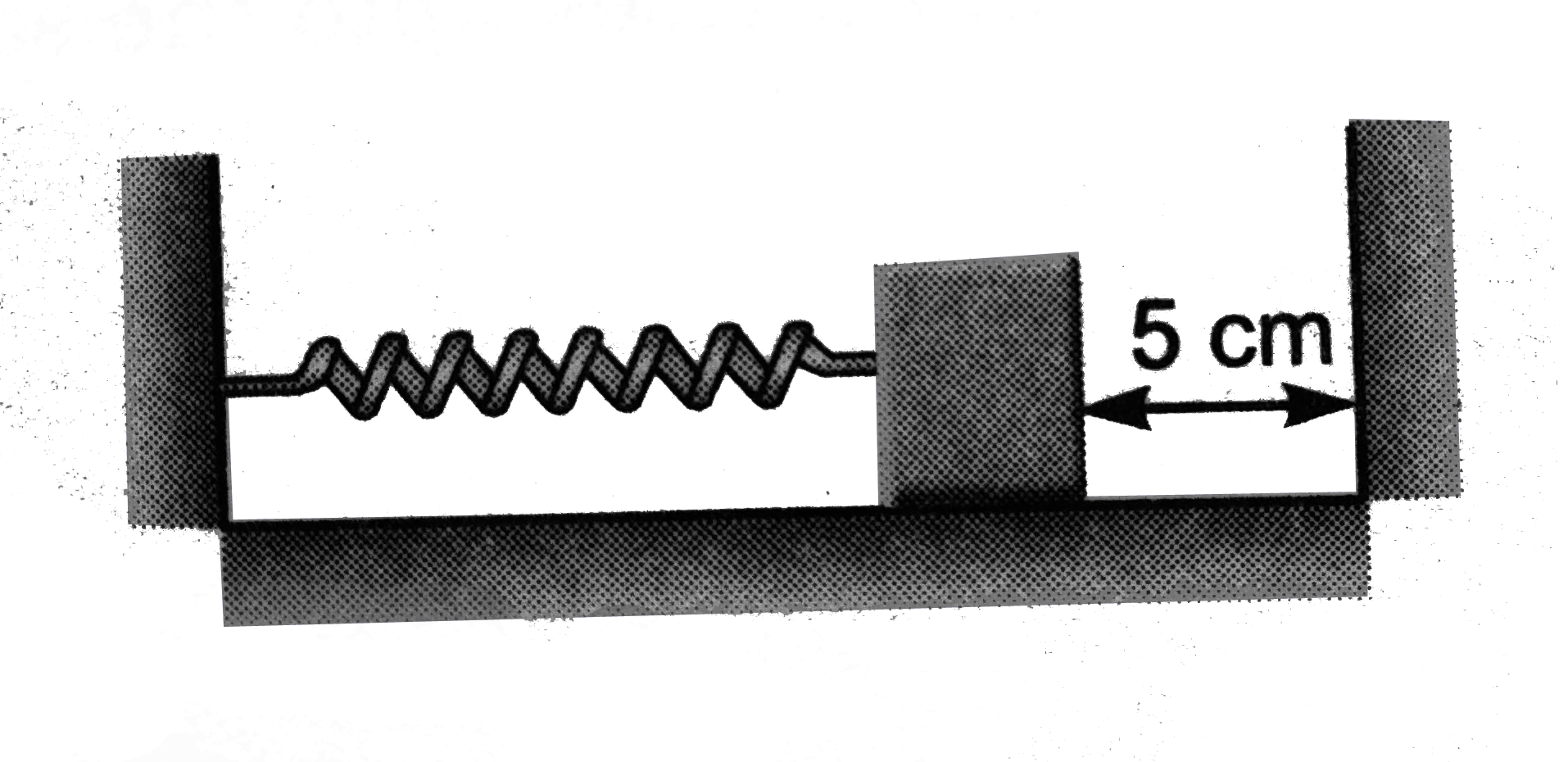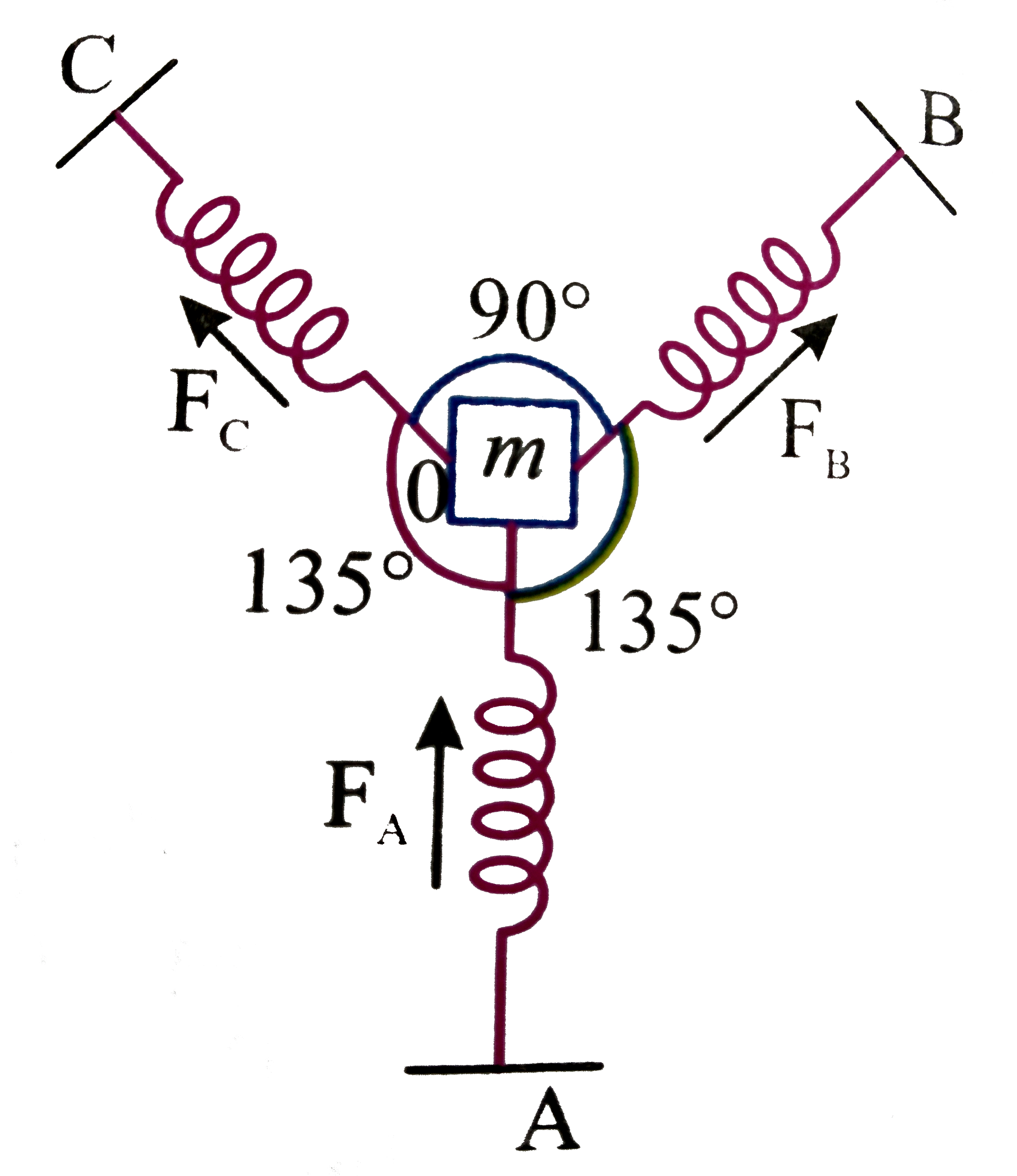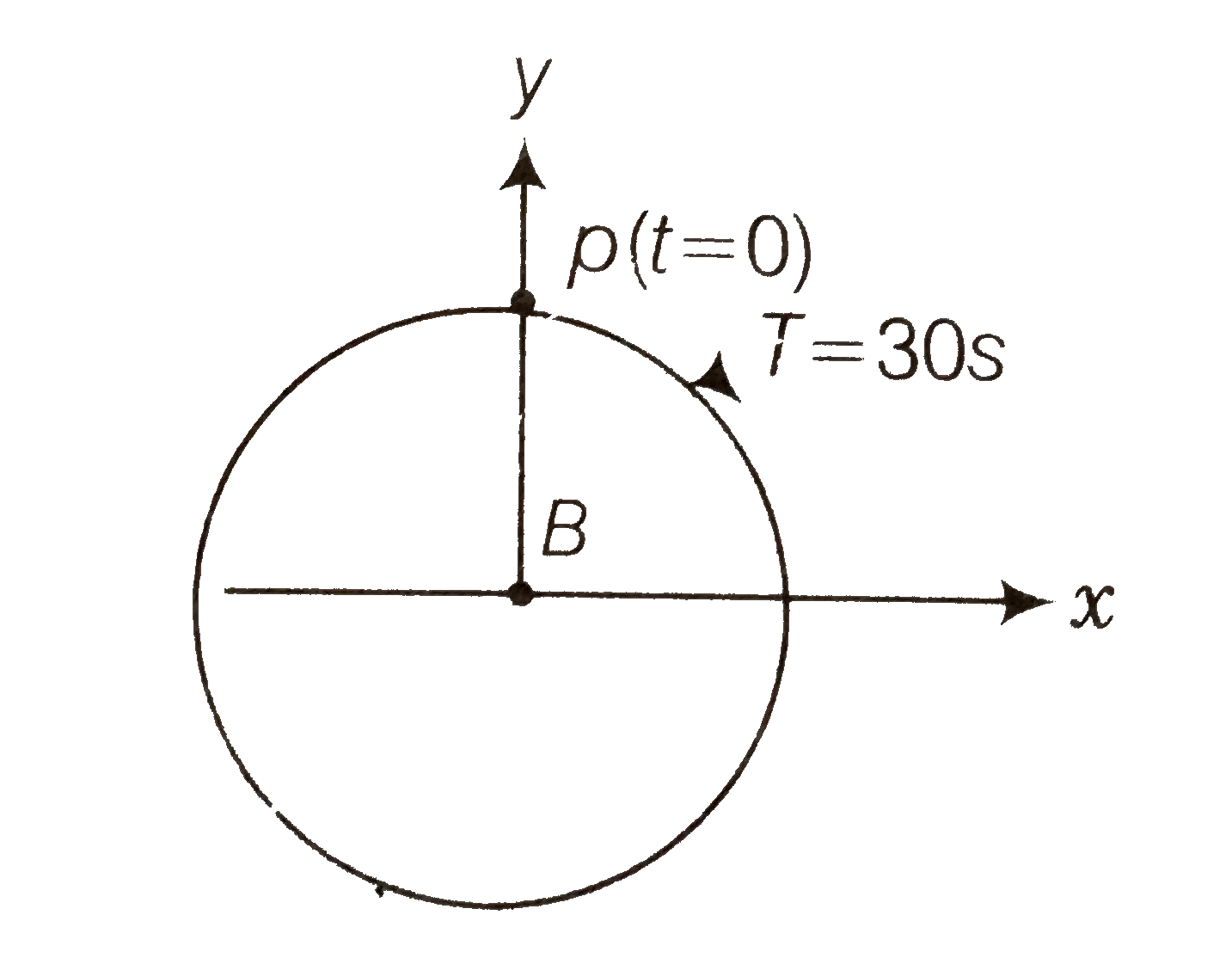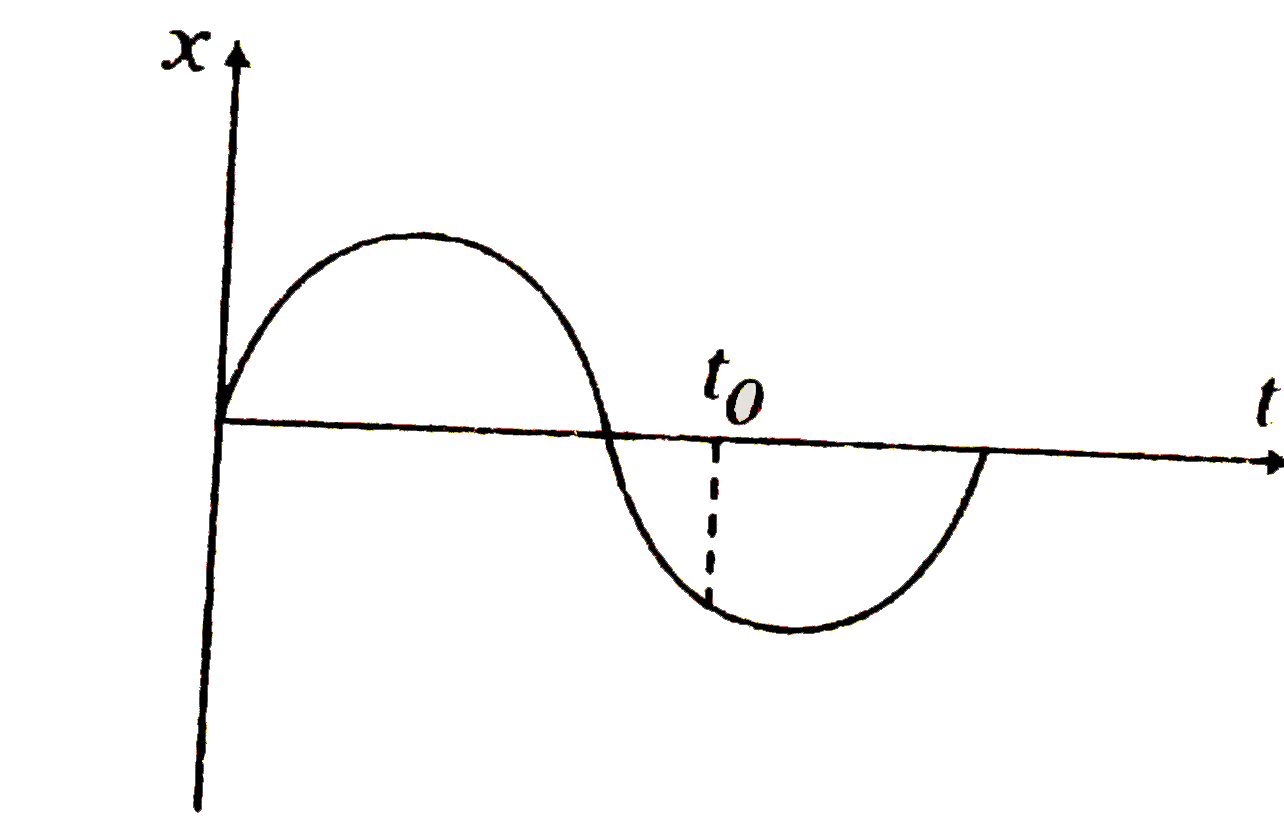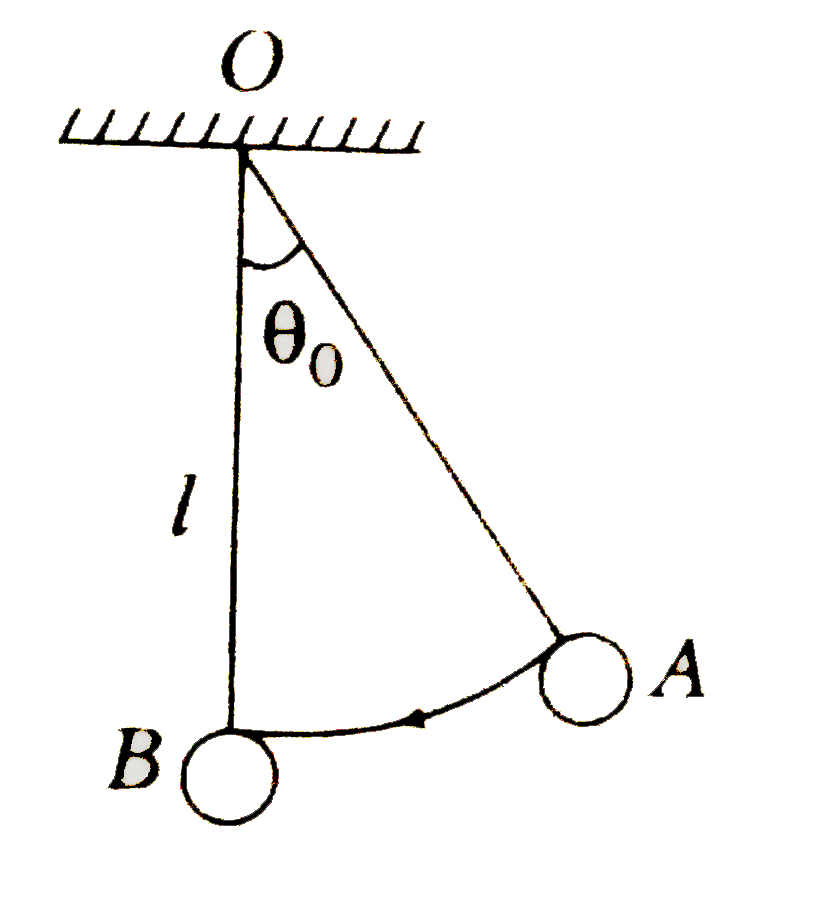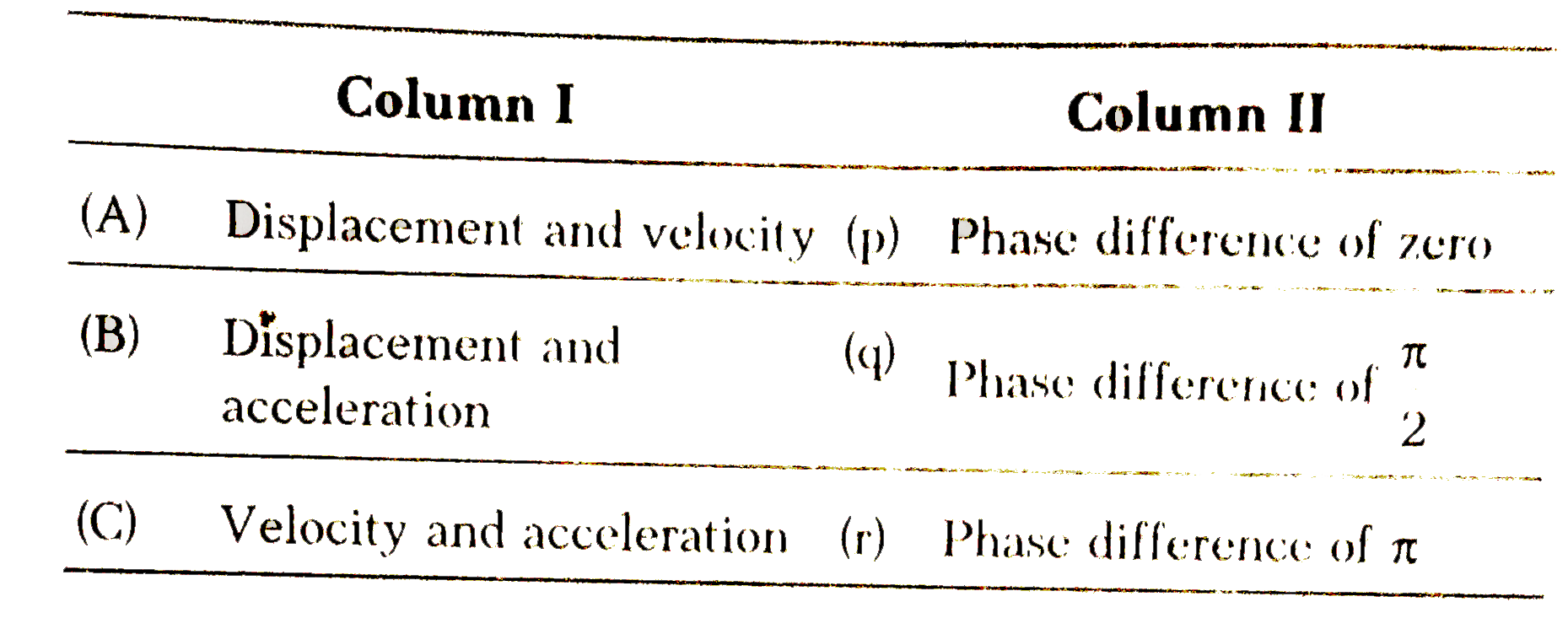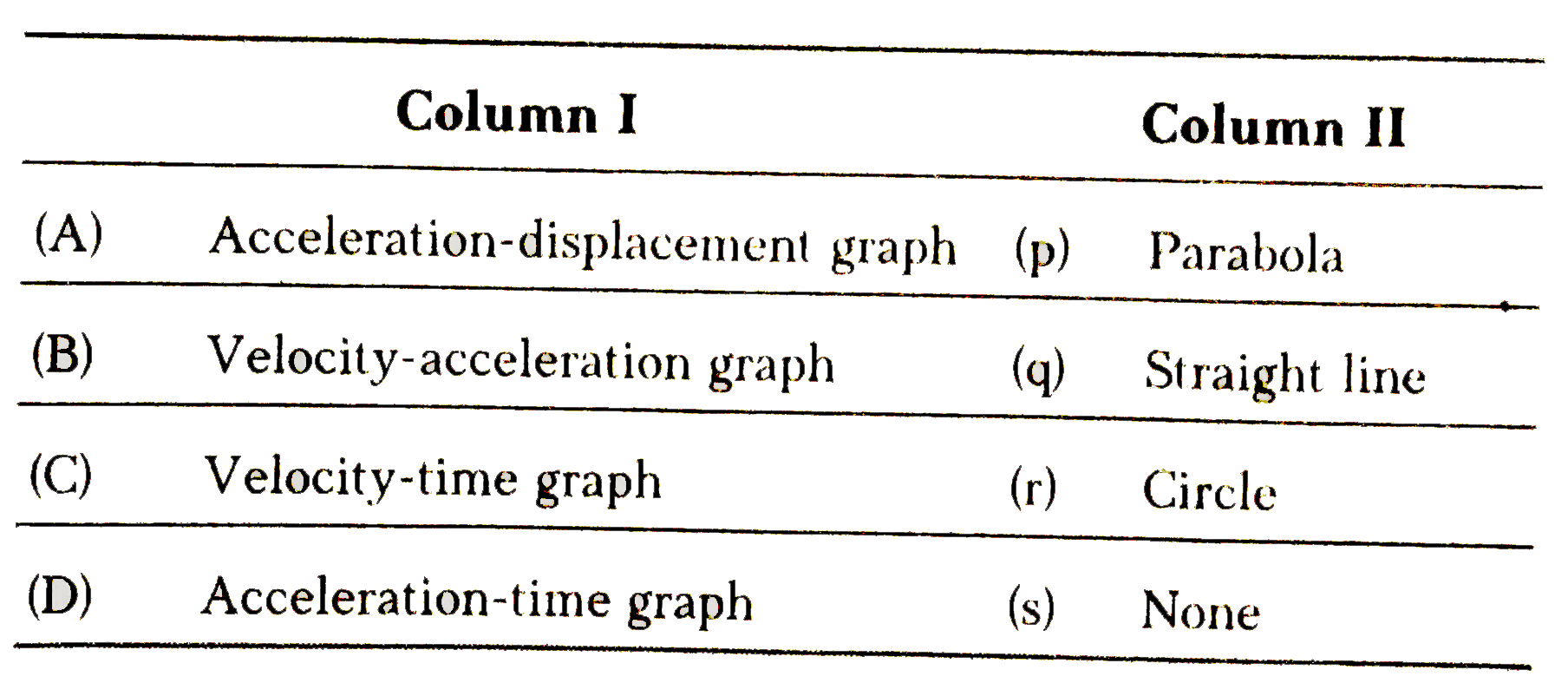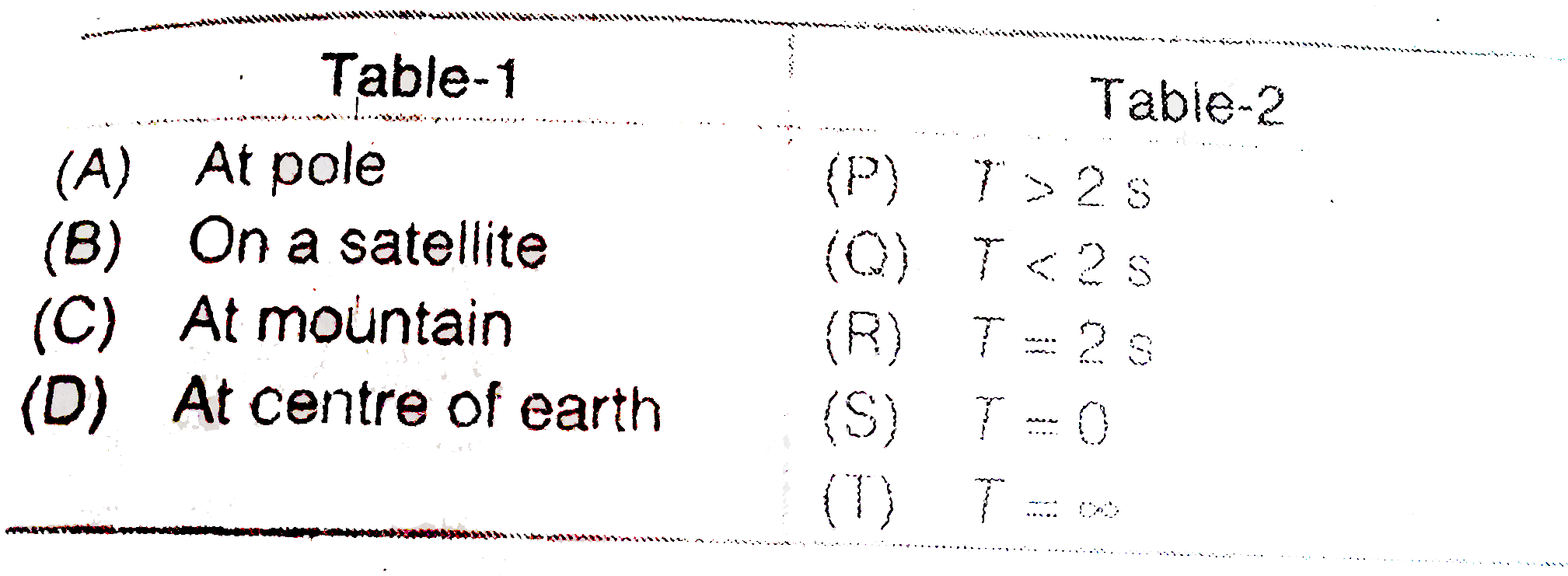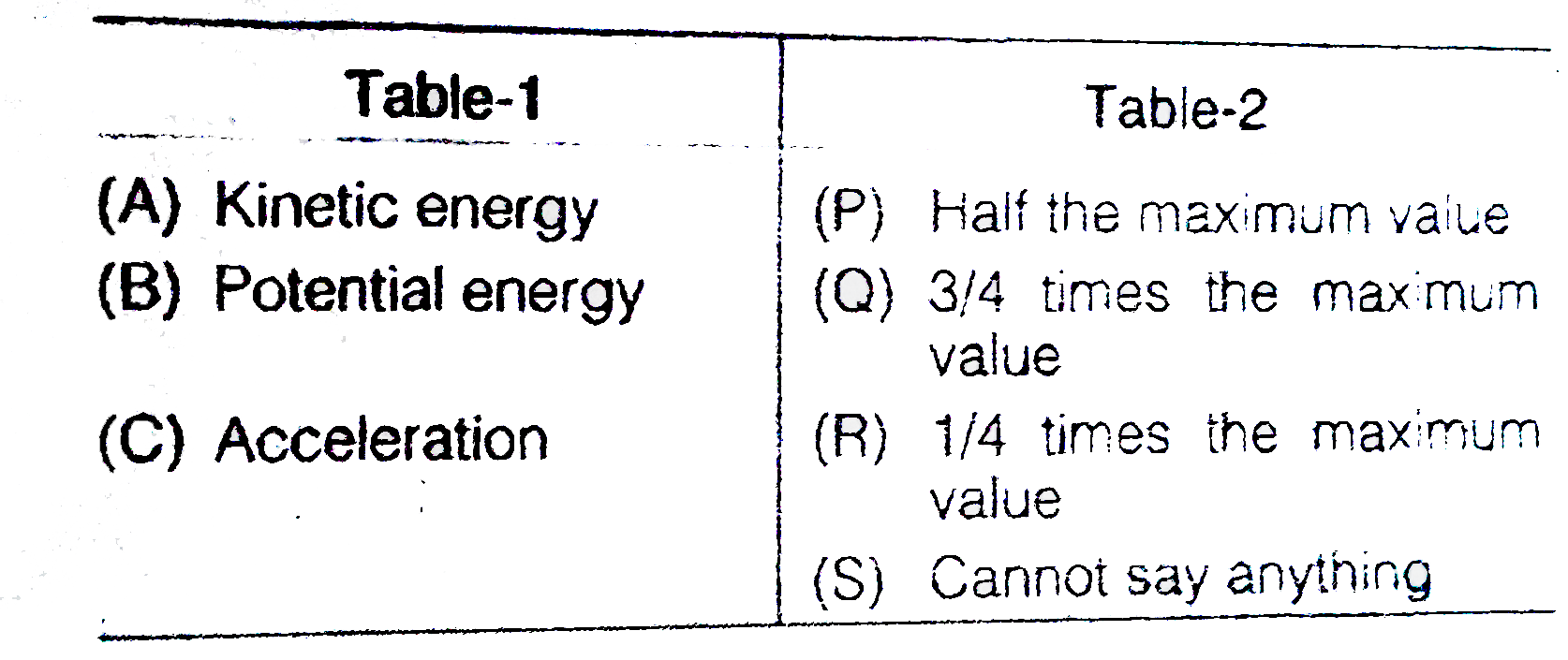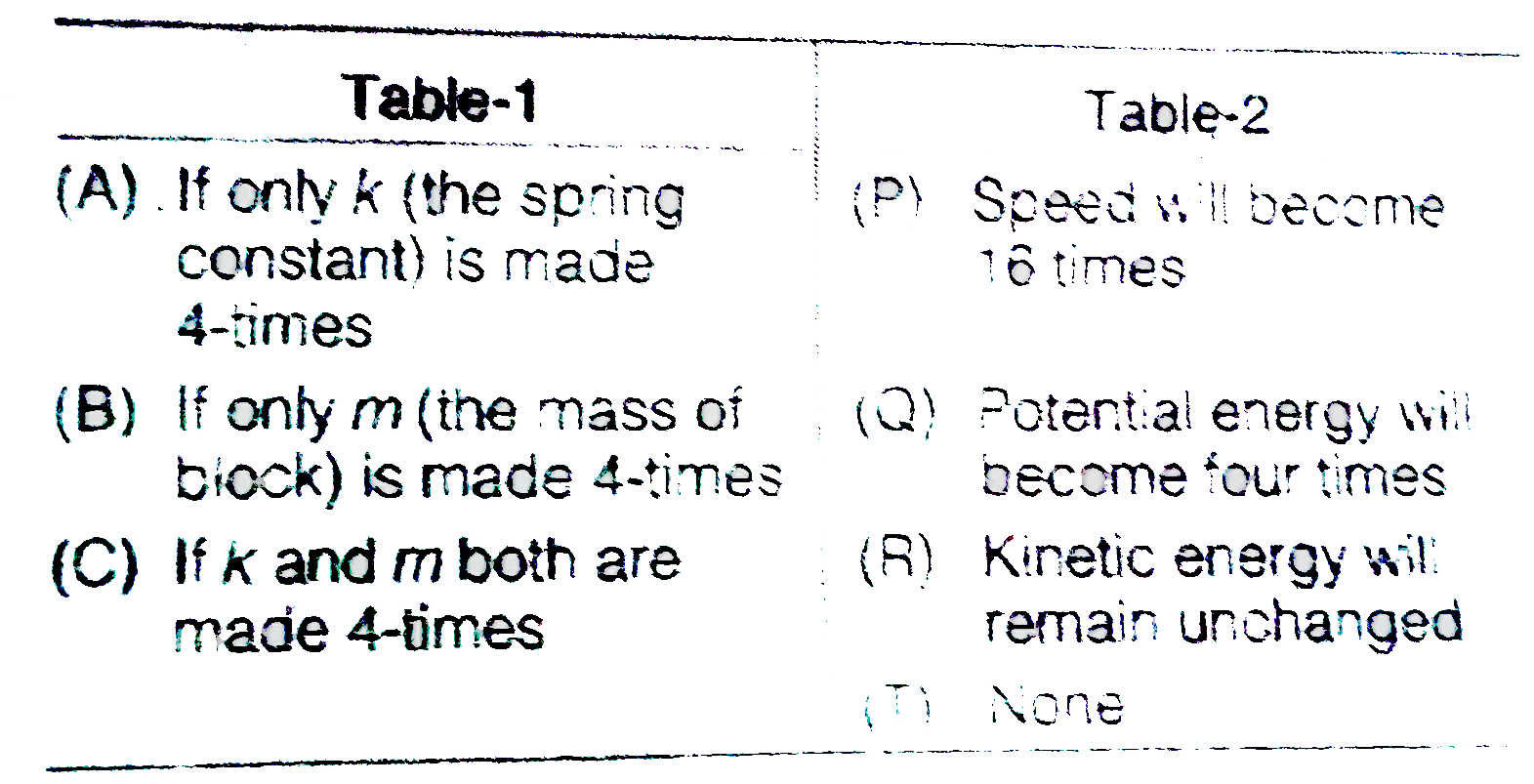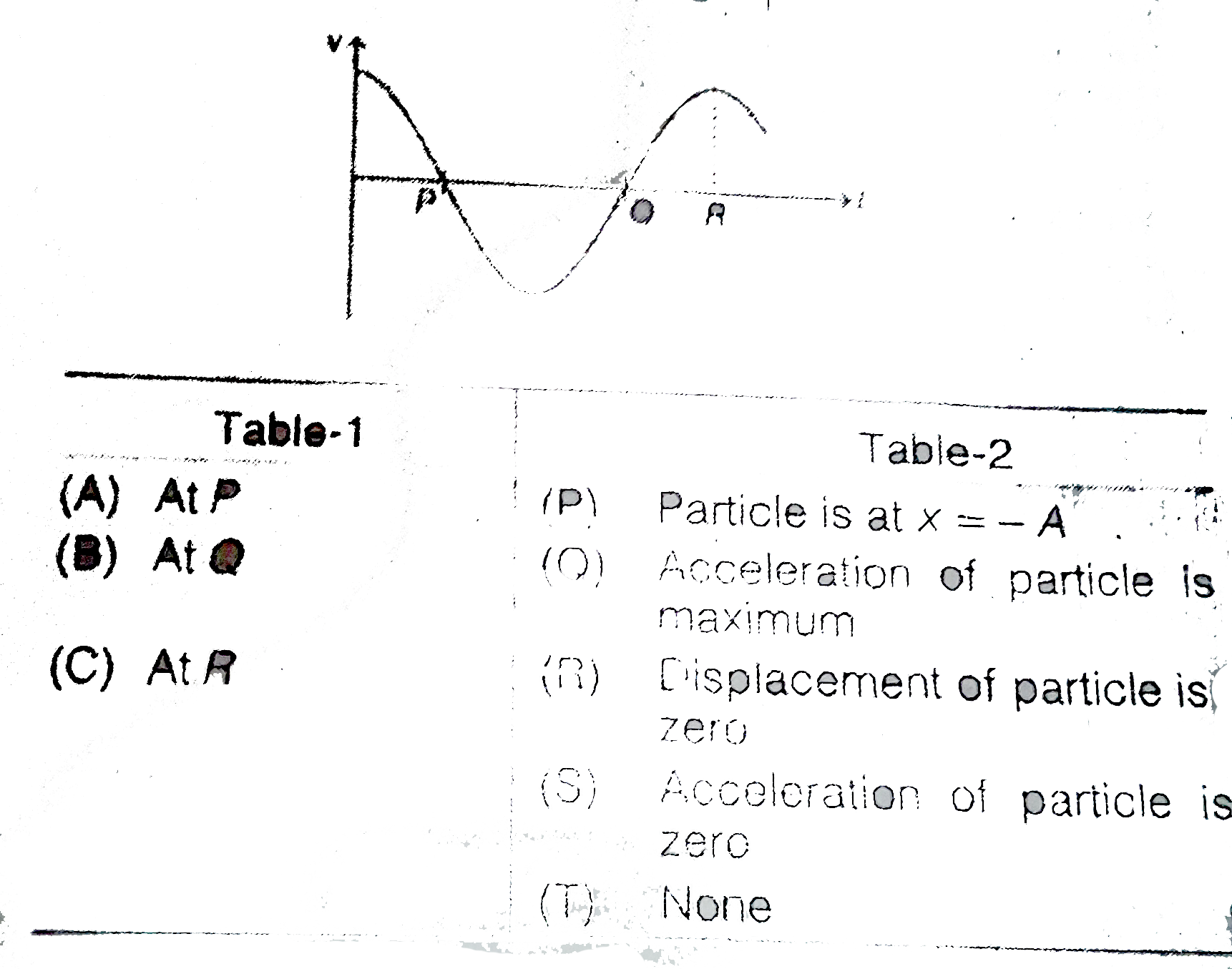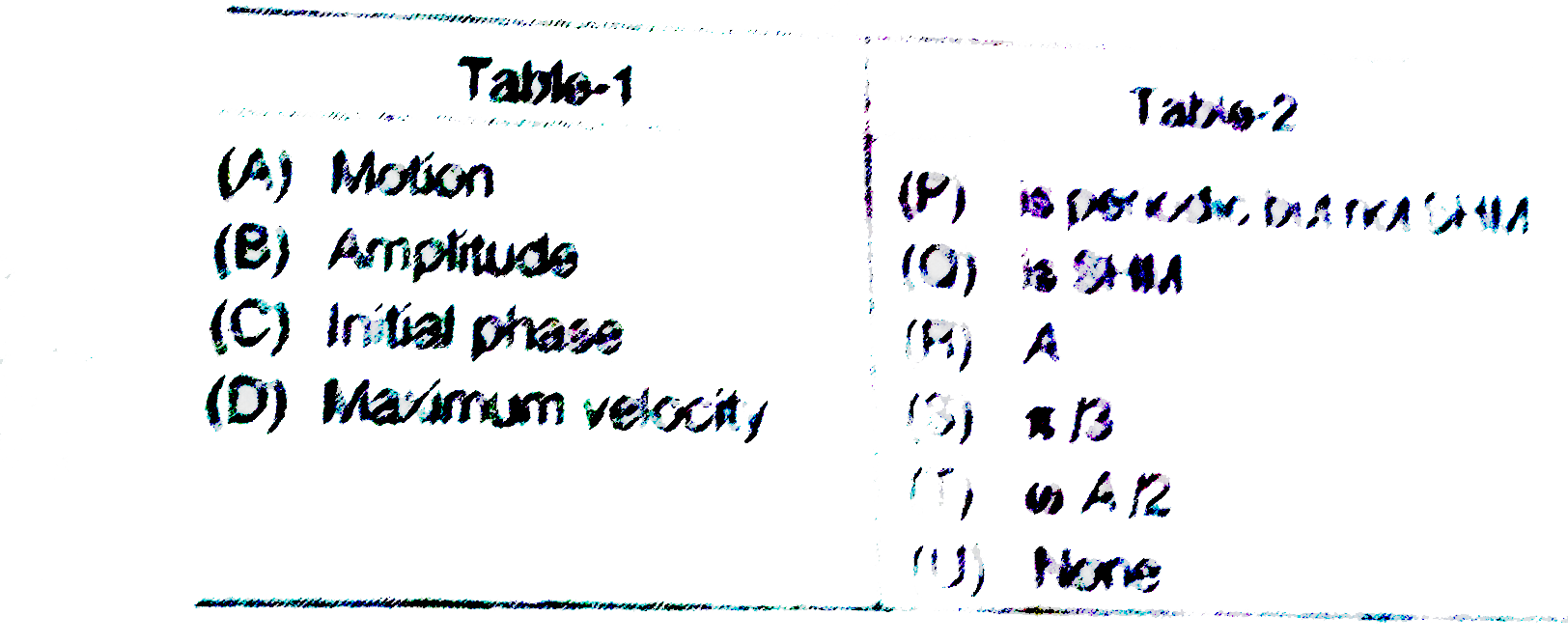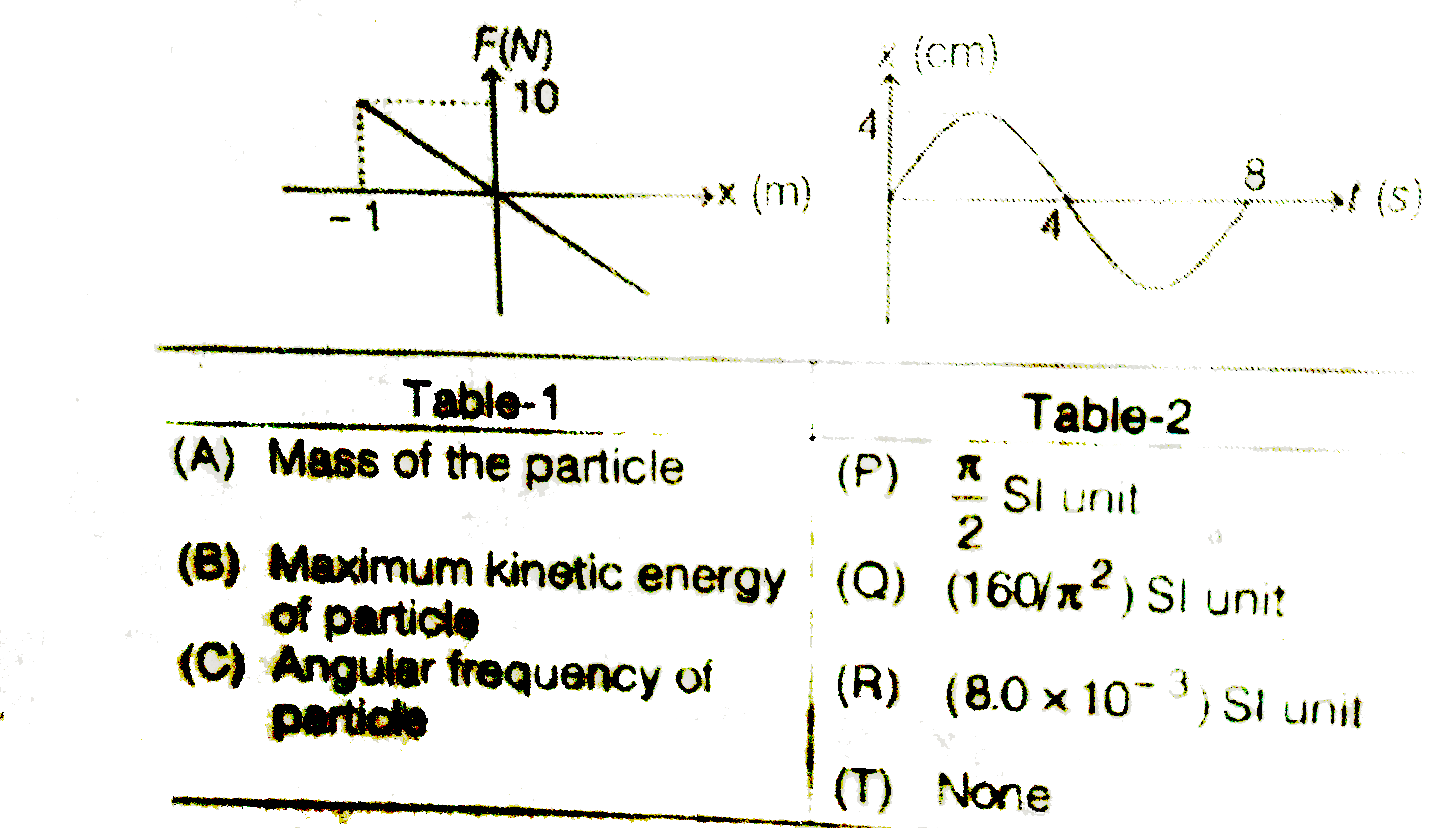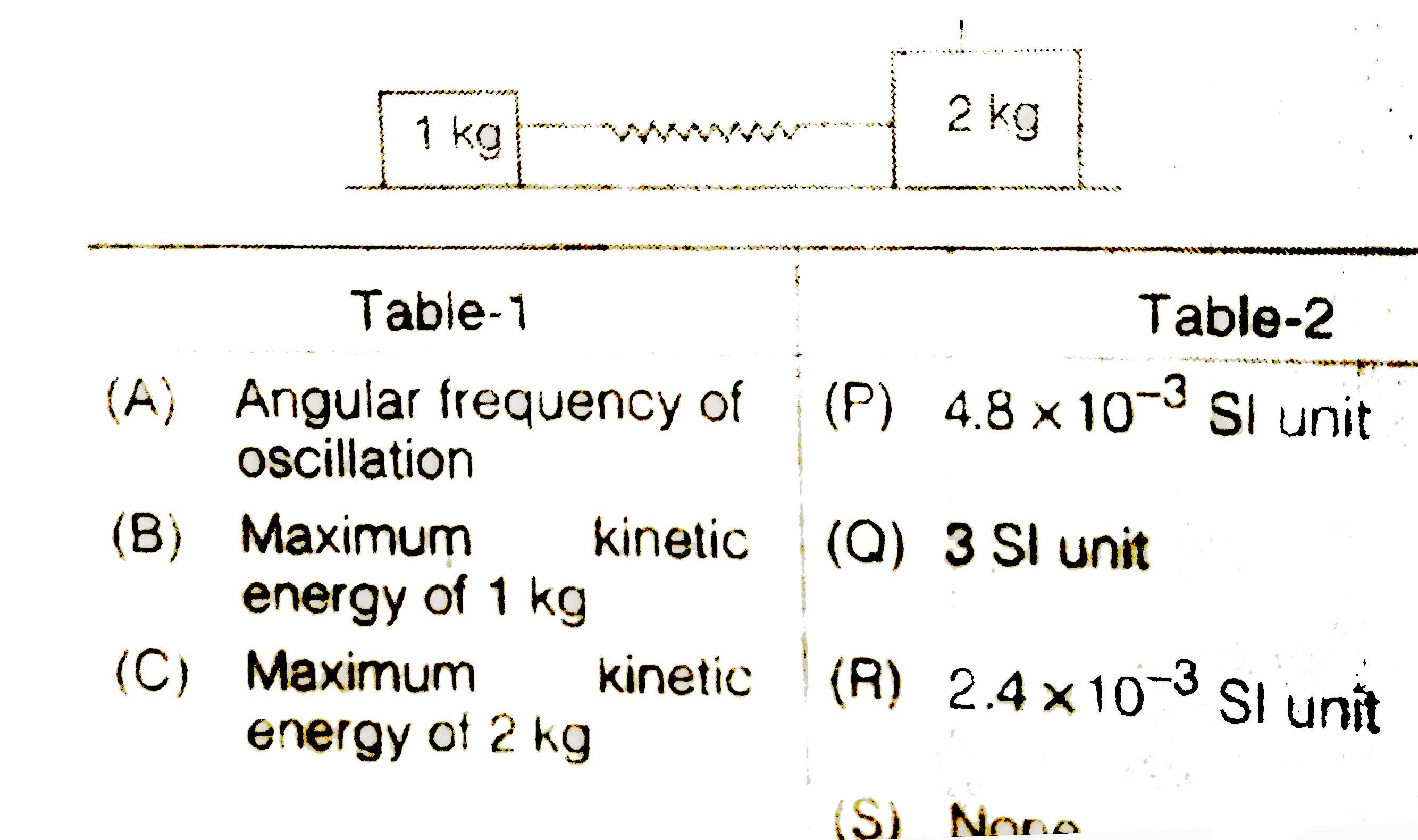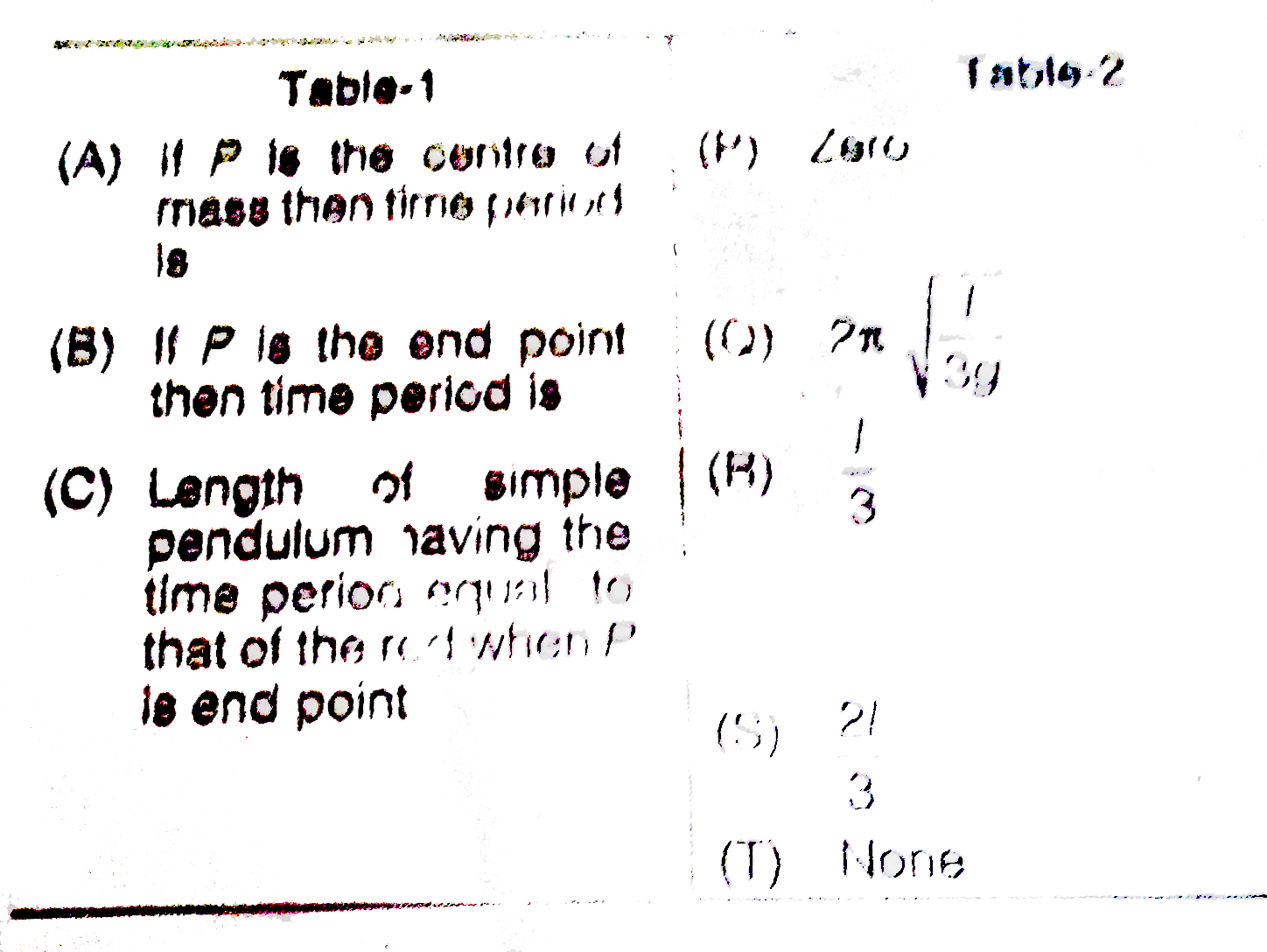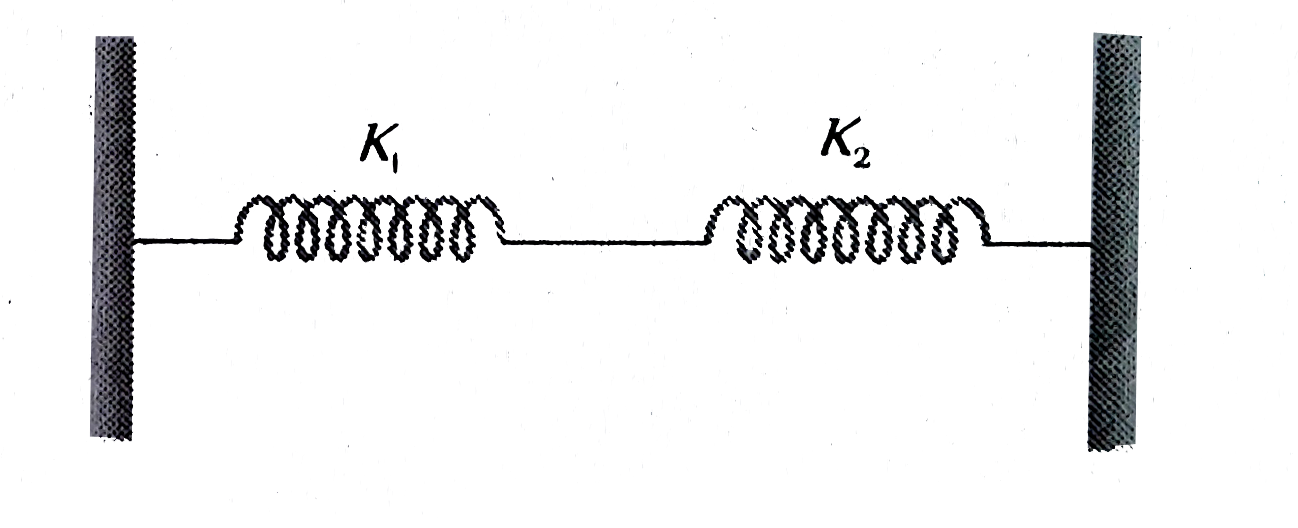Assertion and reason from DC PANDEY PHYSICS (HINGLISH) SIMPLE HARMONIC MOTION for Class 11
| Class 11 | PHYSICS |
| Chapter | SIMPLE HARMONIC MOTION |
| DC PANDEY PHYSICS (HINGLISH) | Assertion and reason |
| Medium | English |
| Academic Year | 2023-2024 |
Question 116
Two bodies (M) and (N) of equal masses are suspended from two separate massless springs of spring constants (k_1) and (k_2) respectively. If the two bodies oscillate vertically such that their maximum velocities are equal, the ratio of the amplitude of vibration of (M) to the of (N) is.View SolutionQuestion 120
A spring has a natural length of 50 cm and a force constant of 2.0×103 Nm−1. A body of mass 10 kg is suspended from it and the spring is stretched. If the body is pulled down to a length of 58 cm and released, it executes simple harmonic motion. The net force on the body when it is at its lowermost position of its oscillation is (10x) newton. Find value of x. (Take g=10m/s2)View SolutionQuestion 122
In a spring- mass system , the length of the spring is L, and it has a mass M attached to it and oscillates with an angular frequency ω. The spring is then cut into two parts, one (i) with relaxed length αL and the other (ii) with relaxed length (1−α) L. The force constants of the two spring A and B areView SolutionQuestion 146
A simple pendulum is suspended from the ceiling of a car and its period of oscillation is T when the car is at rest. The car starts moving on a horizontal road with a constant acceleration g (equal to the acceleration due to gravity, in magnitude) in the forward direction. To keep the time period same, the length of th pendulumView SolutionQuestion 147
A block of mass m, attacted to a string of spring constant k, oscillates on a smooth horizontal table. The other end of the spring is fixed to a wall. The block has a speed v when the spring is at its natural length. Before coming to an instantaneous rest. If the block moves a distance x from the mean position, then View SolutionQuestion 150
A mass is suspended separately by two springs of spring constants k1 and k2 in successive order. The time periods of oscillations in the two cases are T1 and T2 respectively. If the same mass be suspended by connecting the two springs in parallel, (as shown in figure) then the time period of oscillations is T. The correct relations is
 View Solution
View SolutionQuestion 162
In the figure, the block of mass m, attached to the spring of stiffness k is in correct with the completely elastic wall, and the compression in the spring is e. The spring is compressed further by e by displacing the block towards left and is then released. If the collision between the block and the wall is completely eleastic then the time period of oscillation of the block will be
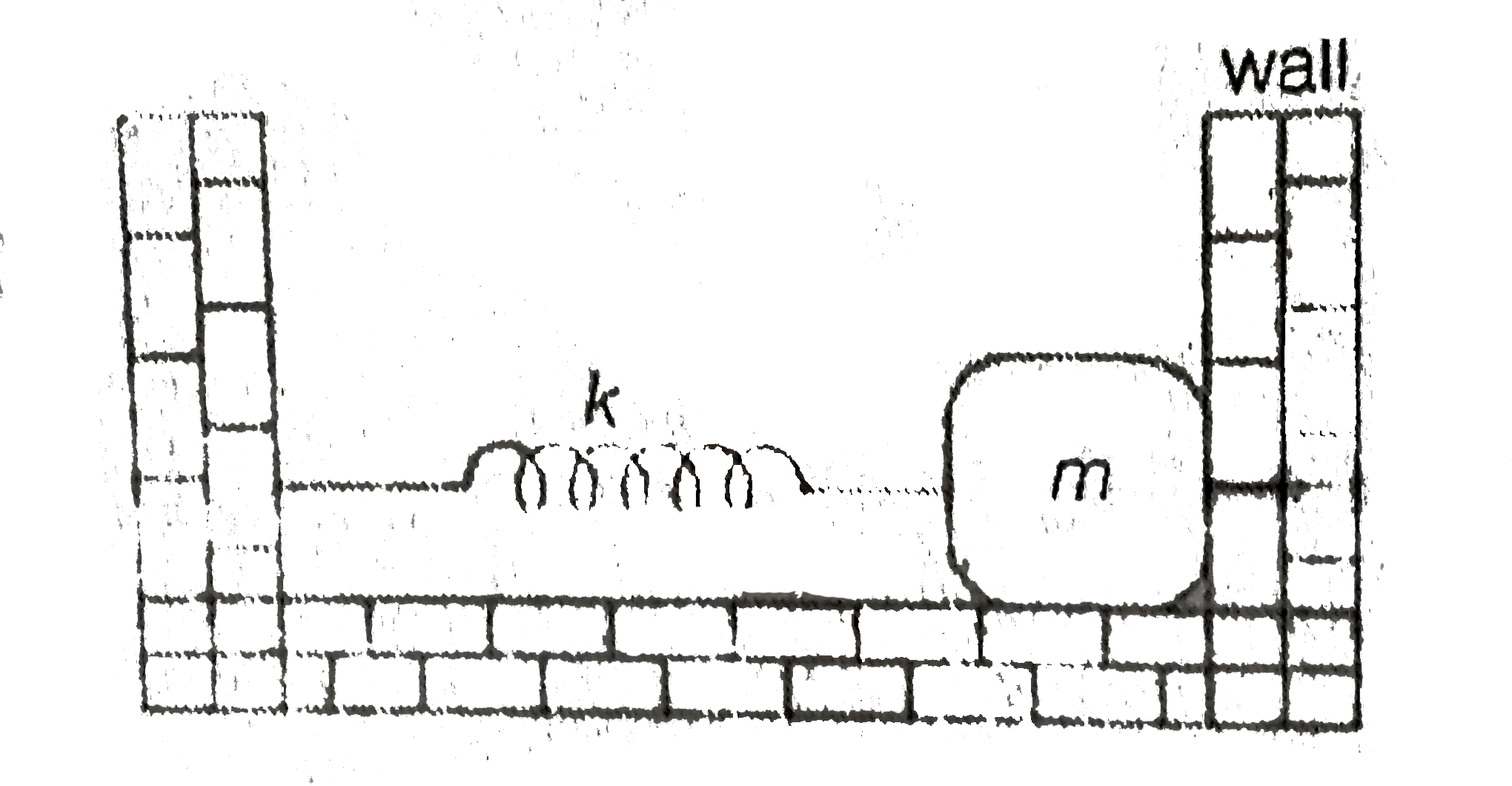 View Solution
View SolutionQuestion 163
A cubical block of mass M vibrates horizontally with amplitude of 4.0 cm and a frequency of 2.0 Hz. A small block of mass is placed on the bigger block. In order that the smaller block does not side on the bigger block, the minimum value of the coefficient of static friction between the two blocks is (0.16x). Find the value of x(Take π2=10 and g=10m/s2)View SolutionQuestion 169
The system shown in figure is in equilibrium . The mass of the container with Liquid is M, density of liquid in the container is ρ and the volume of the block is V. If the container is now displaced downwards through a distance x0 and released such that the block remains well inside the liquid then during subsequent motion
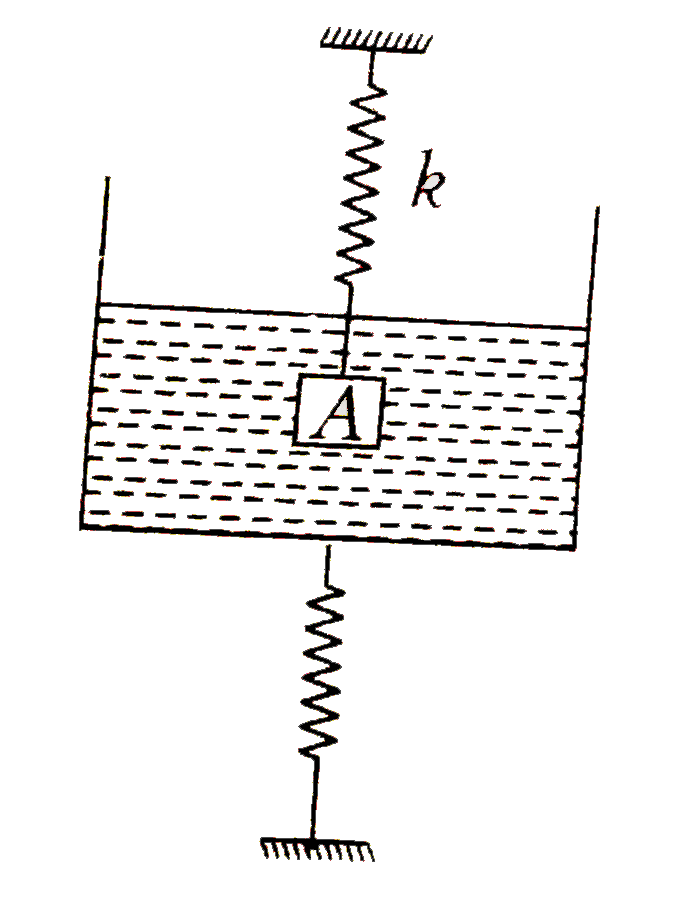 View Solution
View SolutionQuestion 171
One end of a long metallic wire of length (L) is tied to the ceiling. The other end is tied to a massless spring of spring constant . (K.A) mass (m) hangs freely from the free end of the spring. The area of cross- section and the Young's modulus of the wire are (A) and (Y) respectively. If the mass is slightly pulled down and released, it will oscillate with a time period (T) equal to :View SolutionQuestion 173
A mass M is attached to a horizontal spring of force constant k fixed one side to a rigid support as shown in figure. The mass oscillates on a frictionless surface with time period T and amplitude A. When the mass M is in equilibrium position, another mass m is gently placed on it. When will be the new amplitude of ocillation?
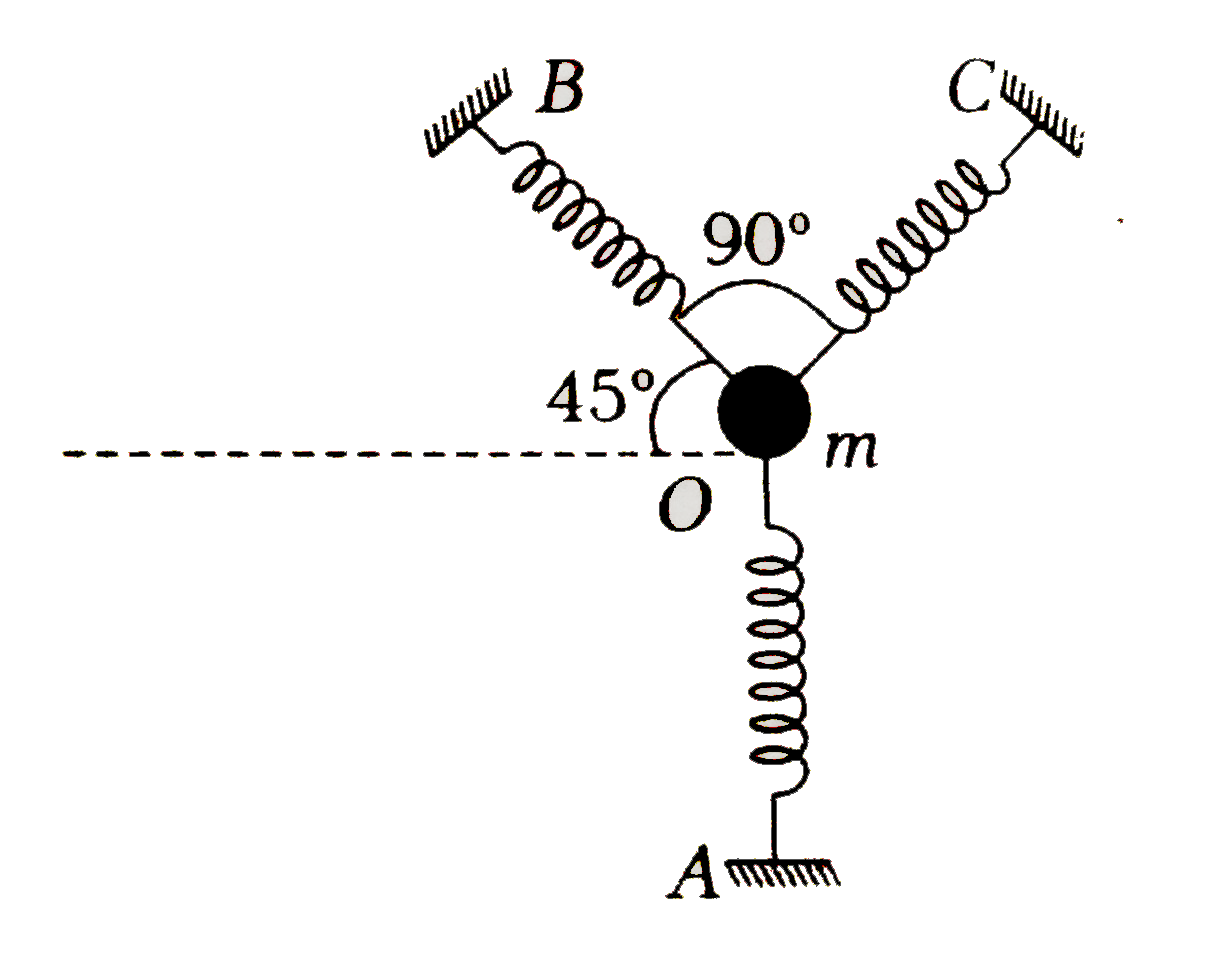
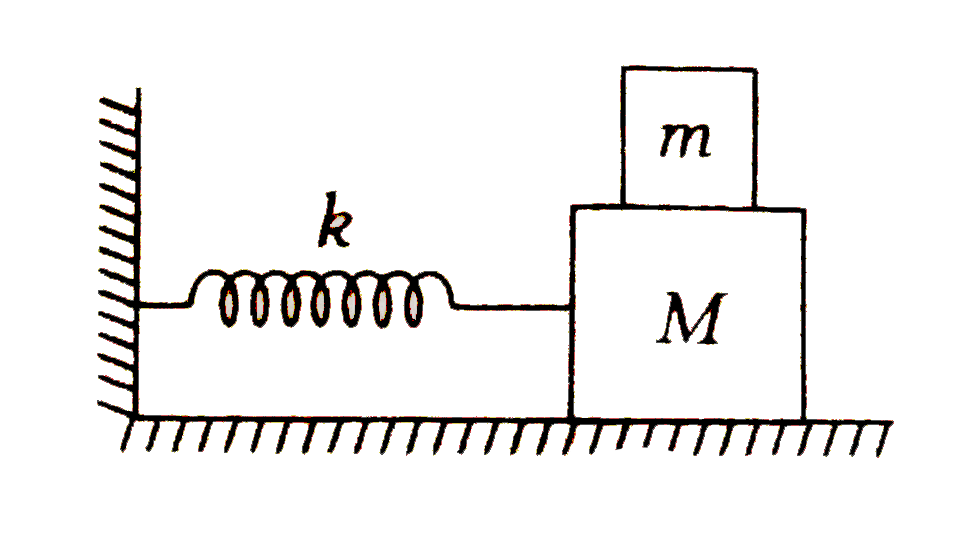 View Solution
View SolutionQuestion 189
Assertion : A particle performing SHM at certain instant is having velocity v. It again acquire a velocity v for the first time after a time interval of T second. Then the time period of oscillation is T second.
Reason : A particle performing SHM can have same velocity at two instants in one cycle.View SolutionQuestion 204
A body of mass m is attached to the lower end of a spring whose upper end is fixed .The spring has negligible mass .When the mass m is slightly pulled down and released it oscillates with a time period of 3s when the mass m is increased by 1kg, time period of oscillations becomes 5s. The value of m in kg is View SolutionQuestion 211
A copper sphere attached to the bottom of a vertical spring is oscillating with time period 10 s. If the copper sphere is immersed in a fluid (assume the viscosity of the fluid is negligilbe) of specfic gravity 14 of that of the copper, then time period of the oscillation isView Solution
All Exercises from DC PANDEY PHYSICS (HINGLISH) Class 11 PHYSICS SIMPLE HARMONIC MOTION
- ASSERTION AND REASON
- CHAPTER EXERCISES
- CHECK POINT 11.1
- CHECK POINT 11.2
- CHECK POINT 11.3
- CHECK POINT 11.4
- COMPREHENSION TYPES
- EXERCISE 14.1
- EXERCISE 14.2
- EXERCISE 14.3
- EXERCISE 14.4
- INTEGER TYPE QUESTIONS
- INTRO. EXER.
- JEE ADVANCED
- LEVEL 1 ASSERTION AND REASON
- LEVEL 1 SINGLE CORRECT
- LEVEL 1 SUBJECTIVE
- LEVEL 2 COMPREHENSION
- LEVEL 2 MORE THAN ONE CORRECT
- LEVEL 2 SINGLE CORRECT
- LEVEL 2 SUBJECTIVE
- MATCH THE COLUMNS
- MATRIX MATCHING TYPE QUESTIONS
- MEDICAL ENTRACES GALLERY
- MORE THAN ONE OPTION IS CORRECT
- ONLY ONE QUESTION IS CORRECT
- EXAMPLE
- EXAMPLE TYPE 1
- EXAMPLE TYPE 10
- EXAMPLE TYPE 11
- EXAMPLE TYPE 12
- EXAMPLE TYPE 13
- EXAMPLE TYPE 2
- EXAMPLE TYPE 3
- EXAMPLE TYPE 4
- EXAMPLE TYPE 5
- EXAMPLE TYPE 6
- EXAMPLE TYPE 7
- EXAMPLE TYPE 8
- EXAMPLE TYPE 9
- EXAMPLES
- MISCELLANEOUS EXAMPLES



